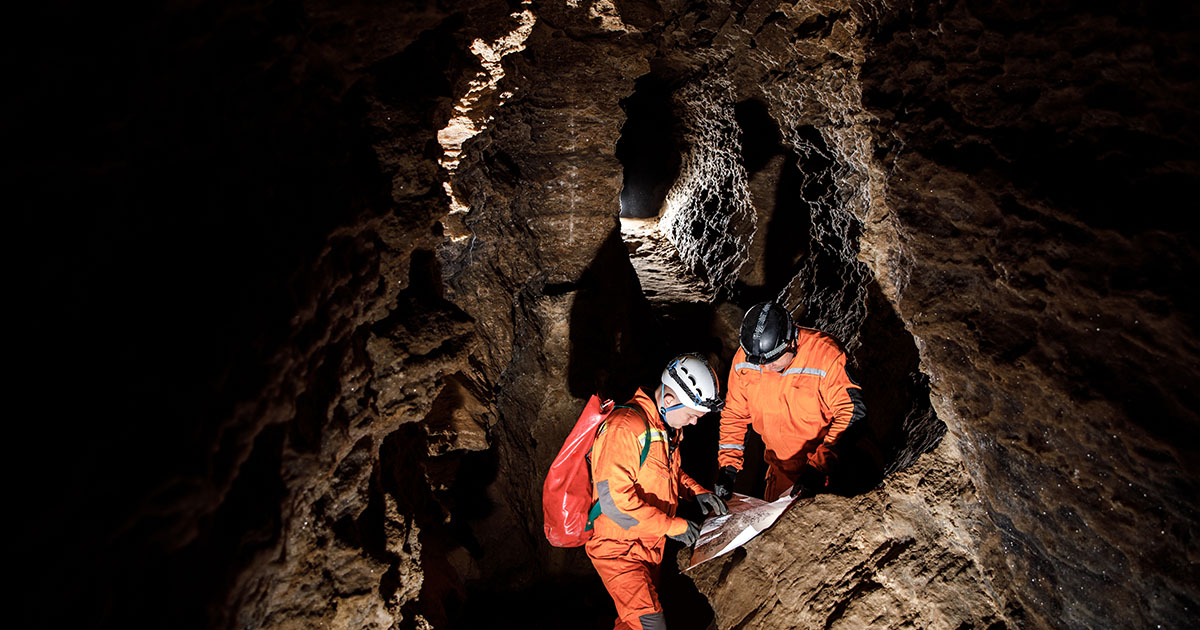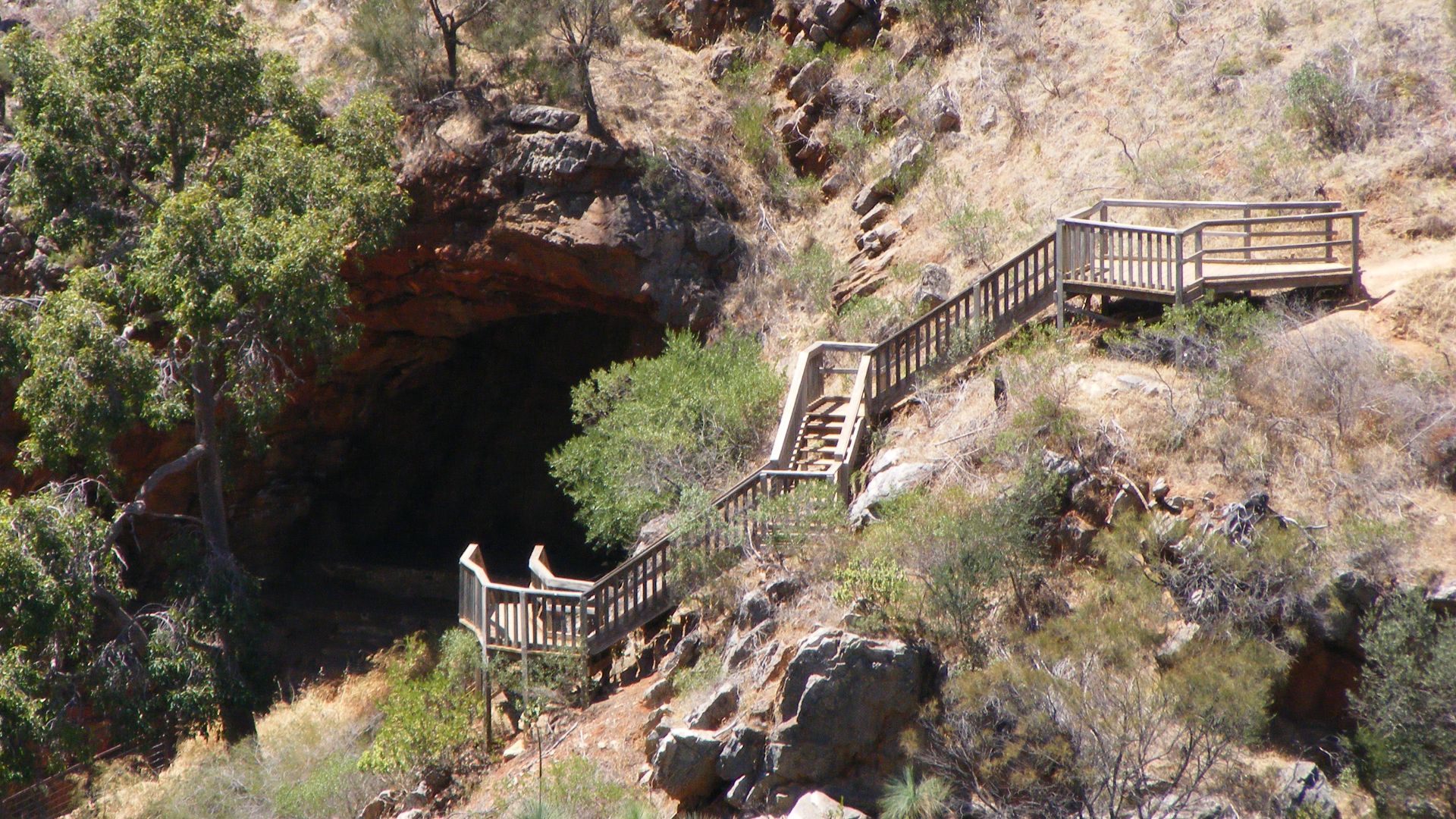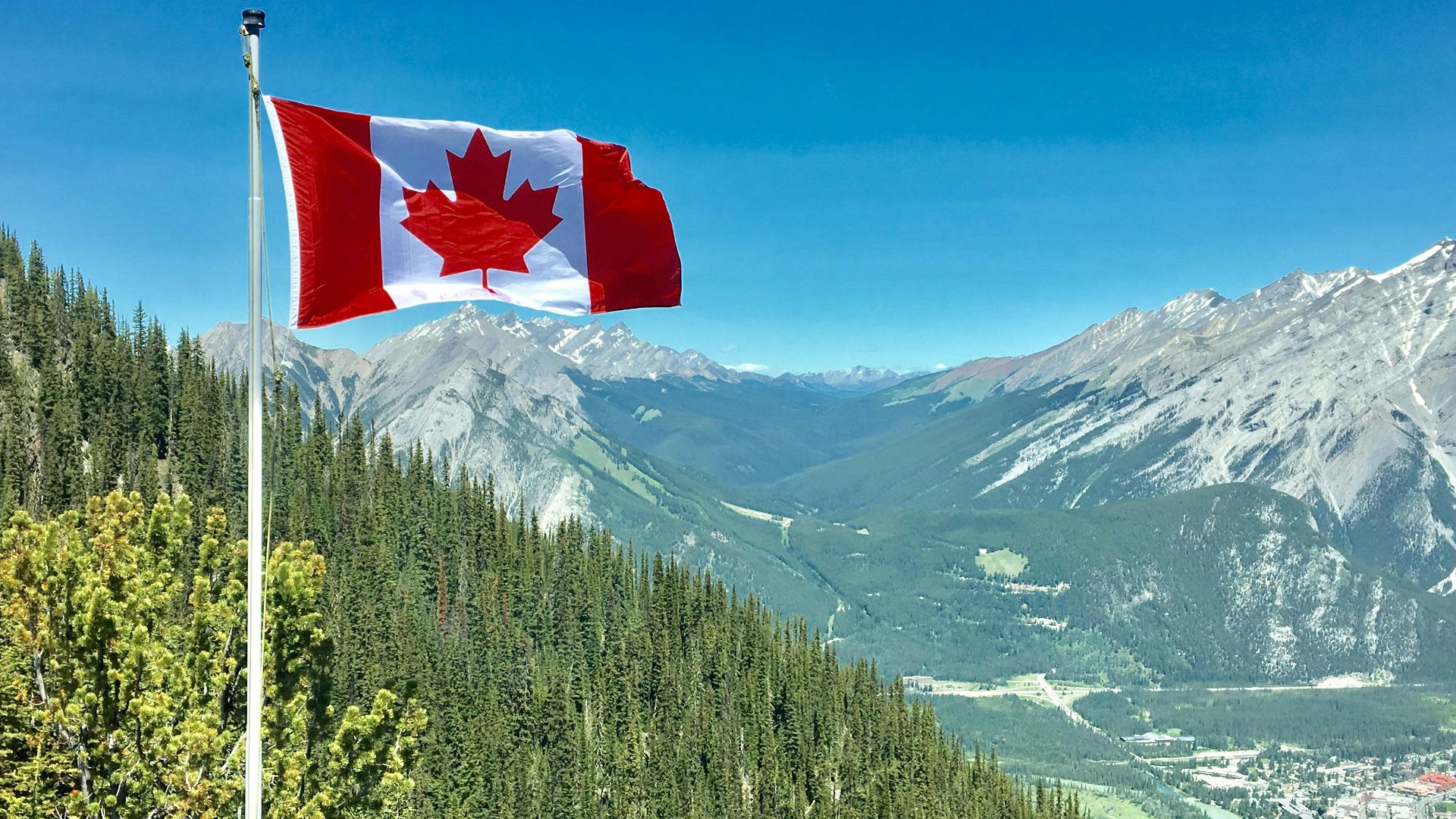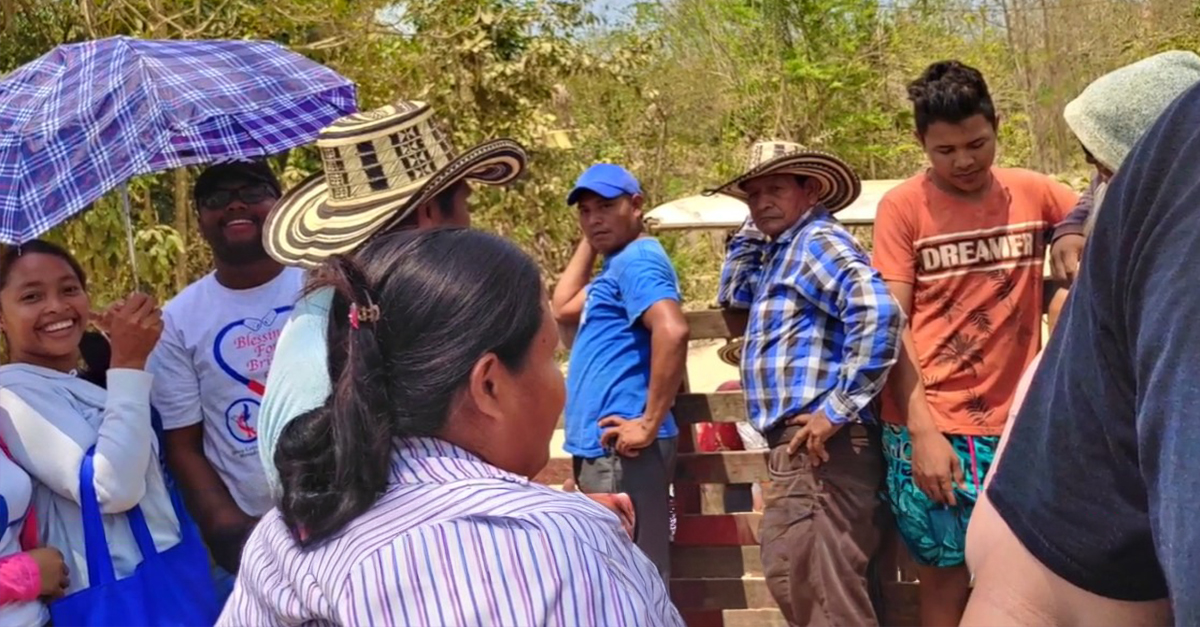Canada’s Hidden Giant Beneath the Rainforest
Deep under Vancouver Island’s coastal rainforest lies a secret 25,450 metres long — a twisting, flooded, bone-filled labyrinth now crowned as Canada’s longest cave system. For nearly 50 years, explorers chipped away at its mysteries, battling freezing mud, sheer drops, and impossible squeezes. The final breakthrough in 2024 came from a voice echoing through the darkness: “HELLO!”
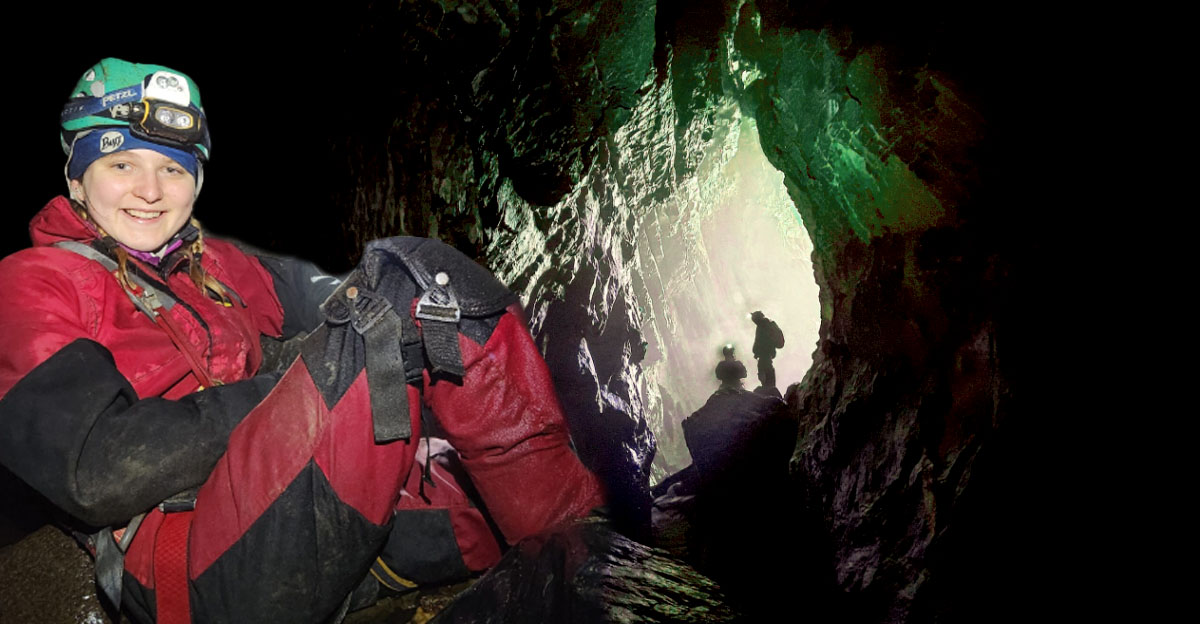
Into the Tight Squeeze
With one arm stretched forward and the other back, Erin Bartlett inched through a narrow limestone tube. Franck Tuot pushed her feet from behind while cold water streamed into her face, making her sputter. Bruised ribs and all, she emerged into an open chamber — the first human to ever stand there — before facing the next challenge.
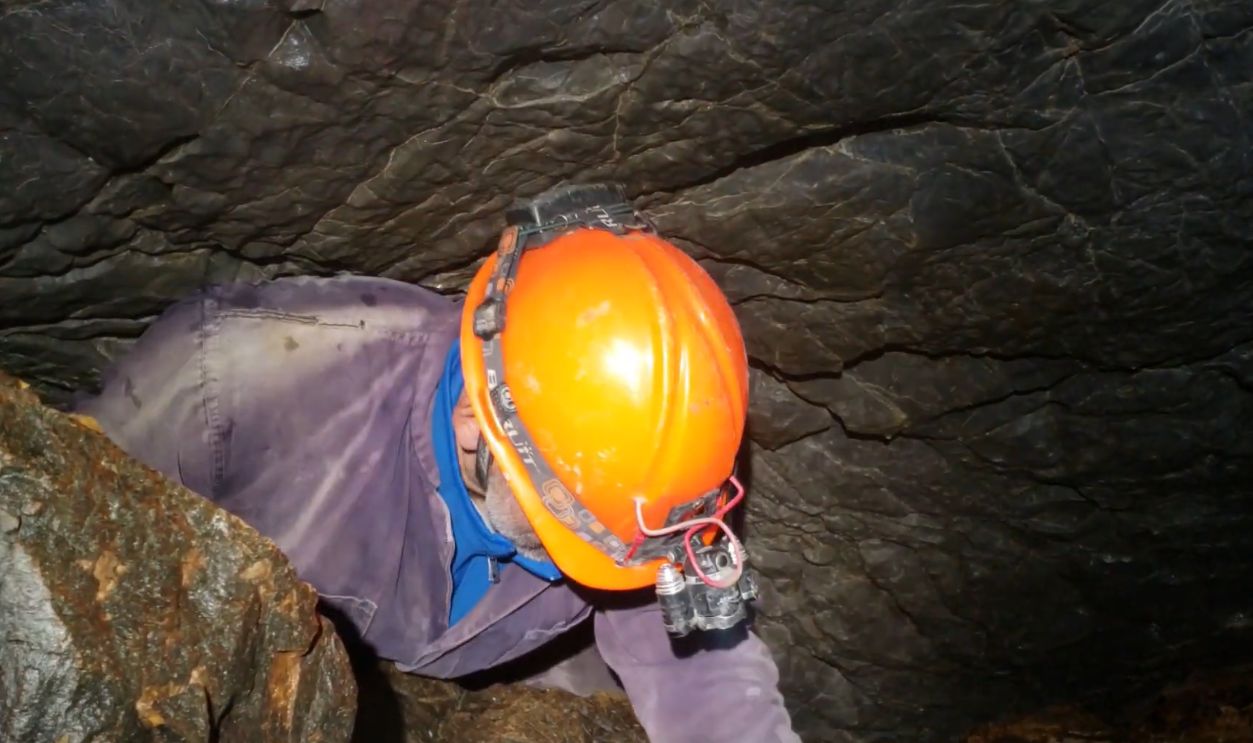 HIDDEN Caves of Vancouver Island, Jesse St Louis
HIDDEN Caves of Vancouver Island, Jesse St Louis
Following the Wind
The next obstacle was another limestone tube with a strong draft. In caving, wind means open passages may lie ahead. But reaching it required crawling through a pool of muddy water. Bartlett, the team’s newcomer-turned-bold scout, wriggled through. After 25 metres, the passage twisted the wrong way. Time to turn back — this lead would have to wait.
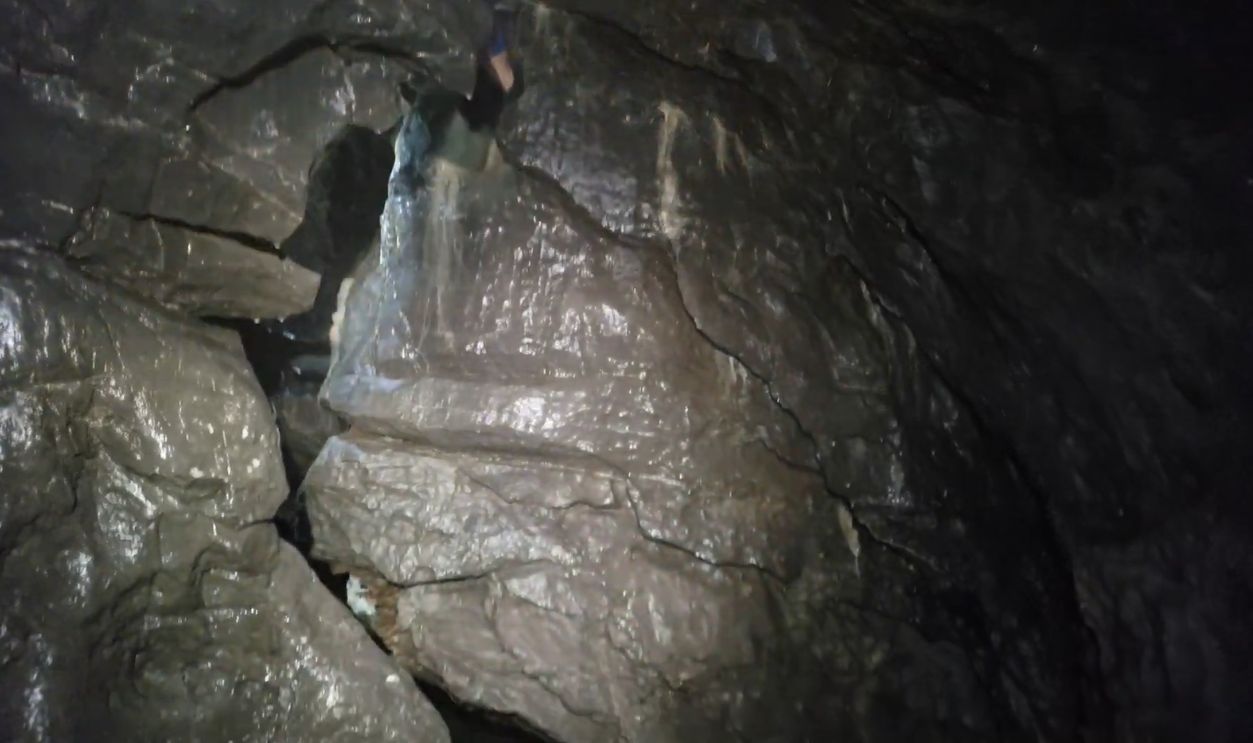 HIDDEN Caves of Vancouver Island, Jesse St Louis
HIDDEN Caves of Vancouver Island, Jesse St Louis
The Hunt for a Connection
Every metre in ARGO is hard-won. The cave holds roughly 150 “unchecked leads” — passages spotted but never entered. The wind-tunnel Bartlett tried was just one of many possible connections between separate cave systems on Vancouver Island. For now, it would go dark again, sealed in silence, waiting for another day.
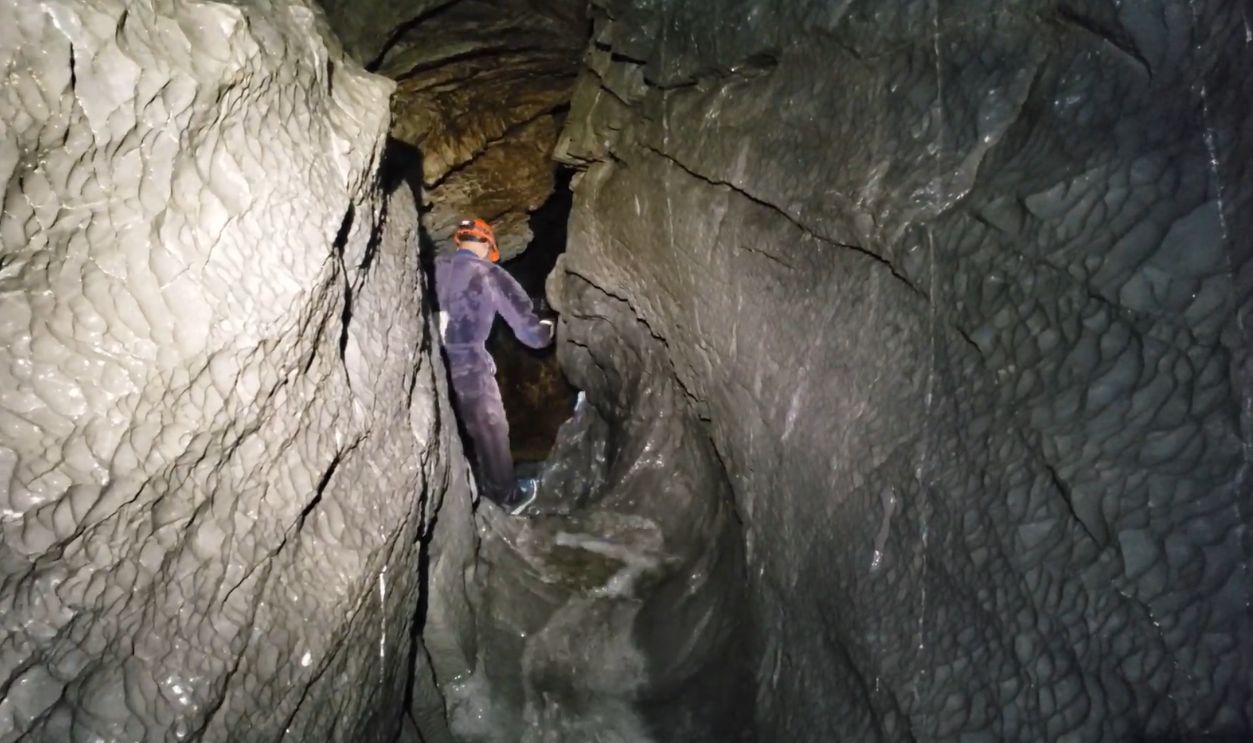 HIDDEN Caves of Vancouver Island, Jesse St Louis
HIDDEN Caves of Vancouver Island, Jesse St Louis
The First Known Entrance
The main entrance to ARGO, called “Giants Cave,” was known to timber cruisers since at least 1977 — and undoubtedly to Indigenous Peoples long before logging came to North Vancouver Island. Soon, other nearby entrances were found, sparking a rush of exploration and mapping in the early 1980s.
But nothing came close to what explorers found in 2024.
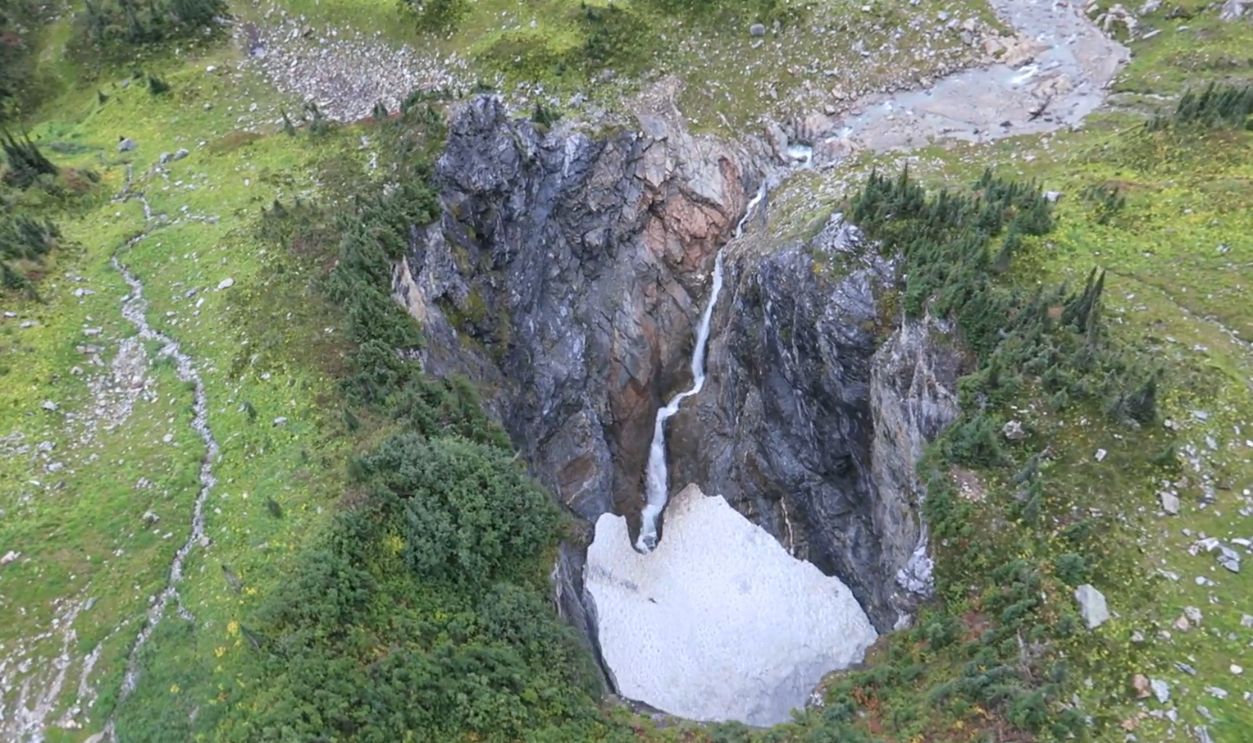 Aerial view of previously unexplored B.C. cave, Canadian Geographic
Aerial view of previously unexplored B.C. cave, Canadian Geographic
The 1980s Cave Boom
In 1982, the North Island Gazette reported: “Huge new cave found near Nimpkish Lake.” Four expansive caves became the focus of local cavers, who pushed into unexplored darkness, mapping each twist and chamber. A breakthrough came in 1988 when two major caves were connected, turning four into three.
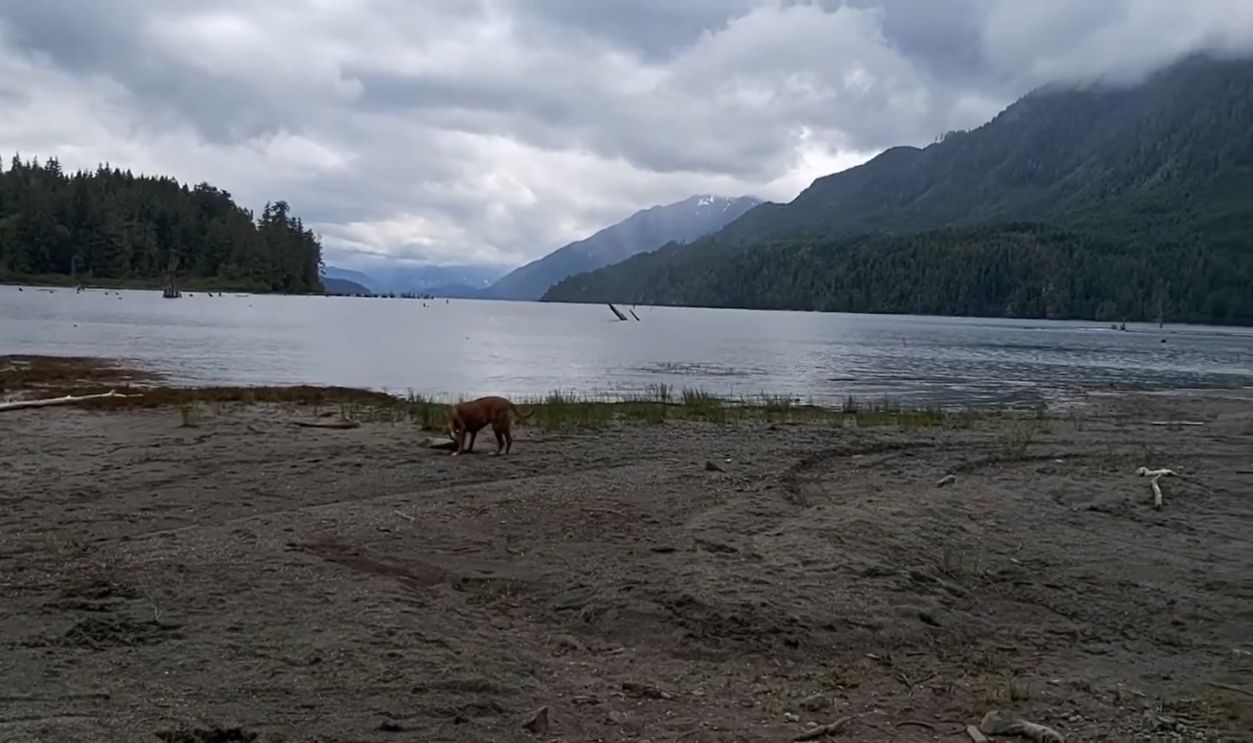 North Island Trails - Nimpkish Lake, Sandra Wilson
North Island Trails - Nimpkish Lake, Sandra Wilson
Rob Countess Takes the Lead
By the 1990s, caver Rob Countess was leading exploration, collecting two decades of data. His maps plotted the system at over 10 kilometres (6.2 miles). In 48 years, just over 100 people have mapped ARGO — a slow, methodical process with obstacles like pits as deep as office towers and unstable rock climbs.
And it just kept getting better.
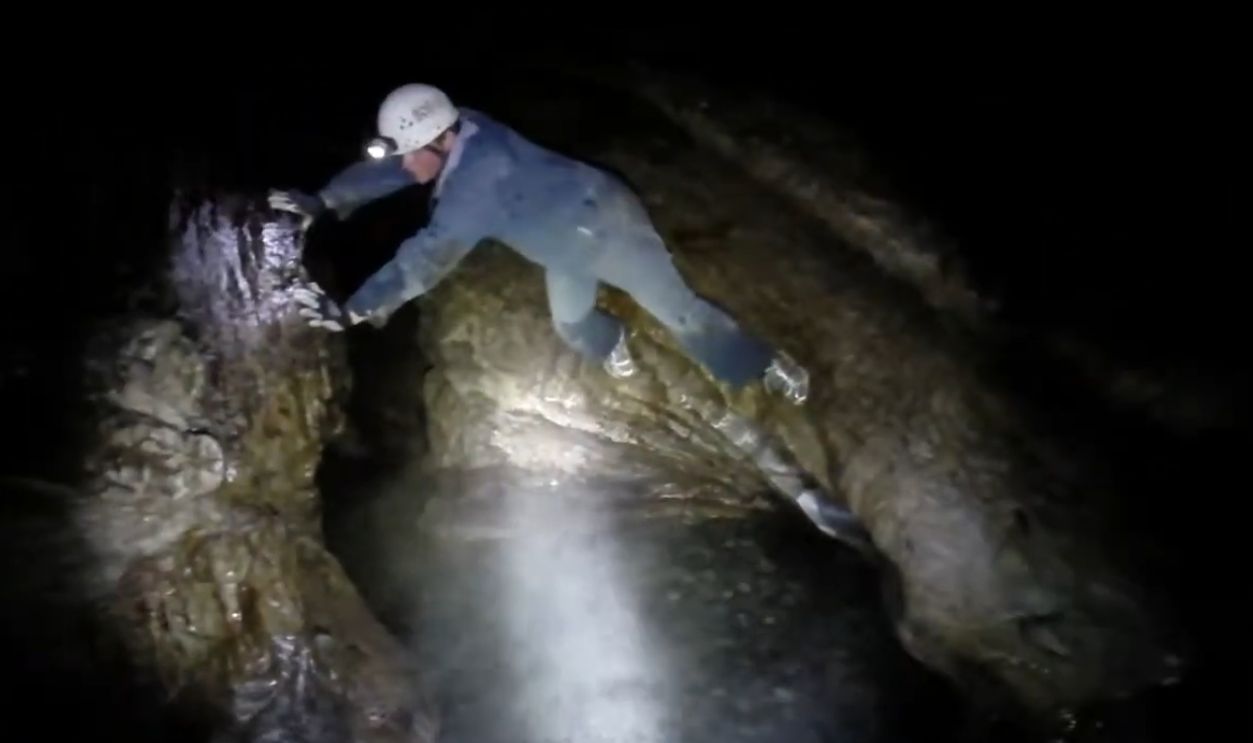 Glory 'Ole, Vancouver Island GoPro, Justin Harris
Glory 'Ole, Vancouver Island GoPro, Justin Harris
The 2017 Turning Point
In 2017, cave cartographer Dennis Mitchell merged 40 years of survey data. Two years later, a short extension overlapped a passage in the neighbouring system, NoWhere Land. This “dead end” hid a buried limestone tube filled with ancient sediments — a clue to something bigger.
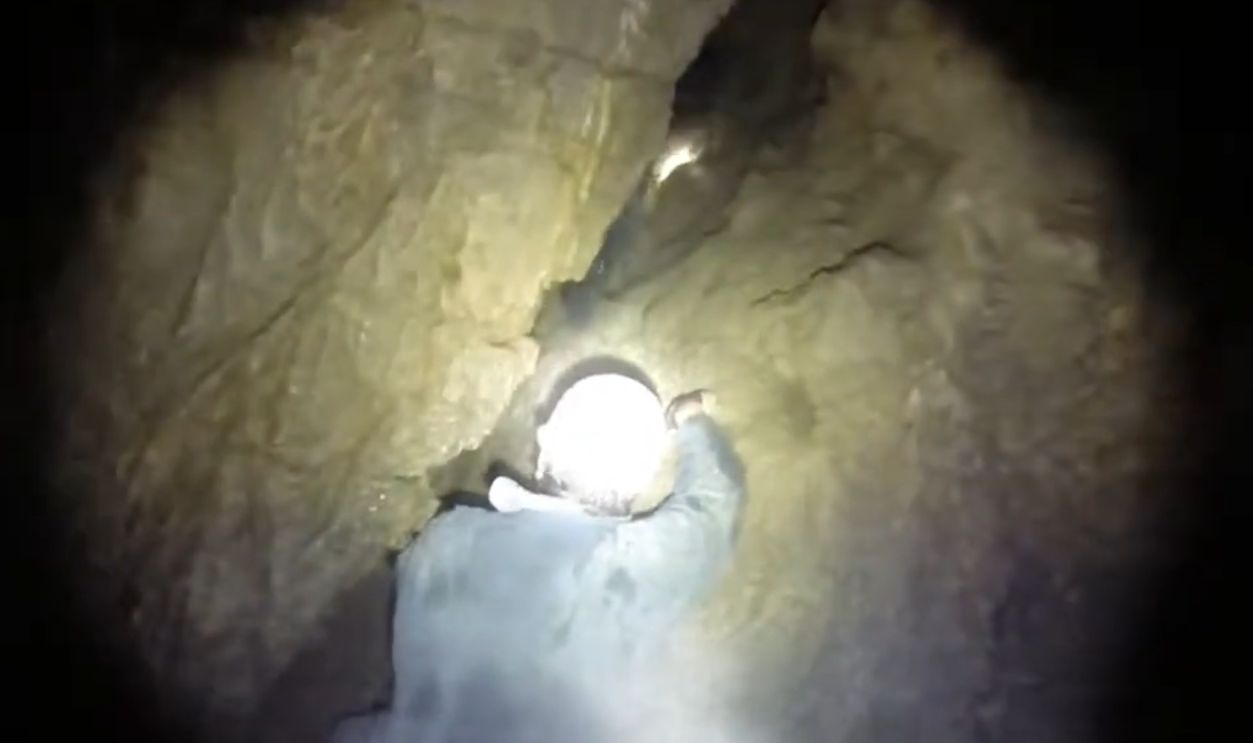 Glory 'Ole, Vancouver Island GoPro, Justin Harris
Glory 'Ole, Vancouver Island GoPro, Justin Harris
Digging Toward The Great Escape
John Lay and Franck Tuot led teams that dug through the sediment over several trips. They proved a physical connection between systems, naming it “The Great Escape” after the WWII POW tunnel. At 17,101 metres (56,105 feet) long and 400 metres (1,312 feet) deep, ARGO became Canada’s second-longest cave, behind Castleguard Cave.
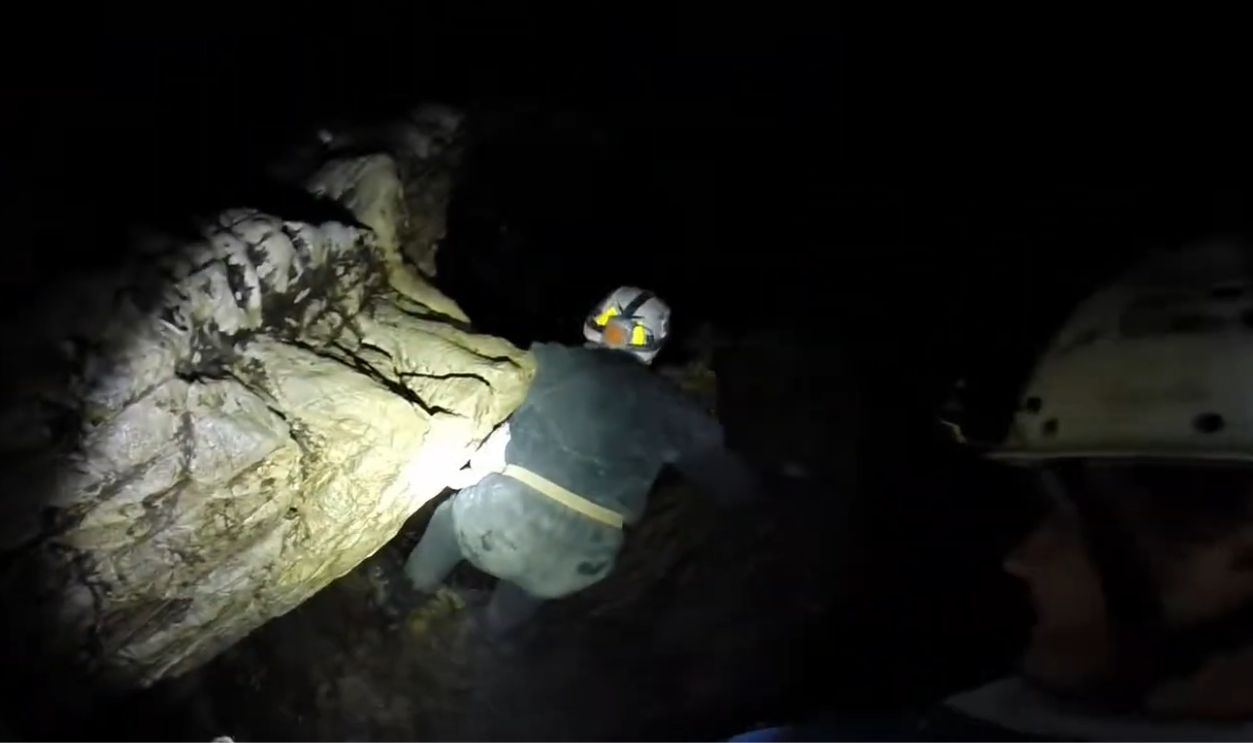 Glory 'Ole, Vancouver Island GoPro, Justin Harris
Glory 'Ole, Vancouver Island GoPro, Justin Harris
Overlapping Passages Await
The new map showed ARGO’s passages overlapped its neighbour in several spots. Somewhere nearby, another connection was almost certain. Finding it would mean tackling some of the cave’s hardest sections — and Bartlett couldn’t stop thinking about one twisting, windy lead she had left unexplored years earlier.
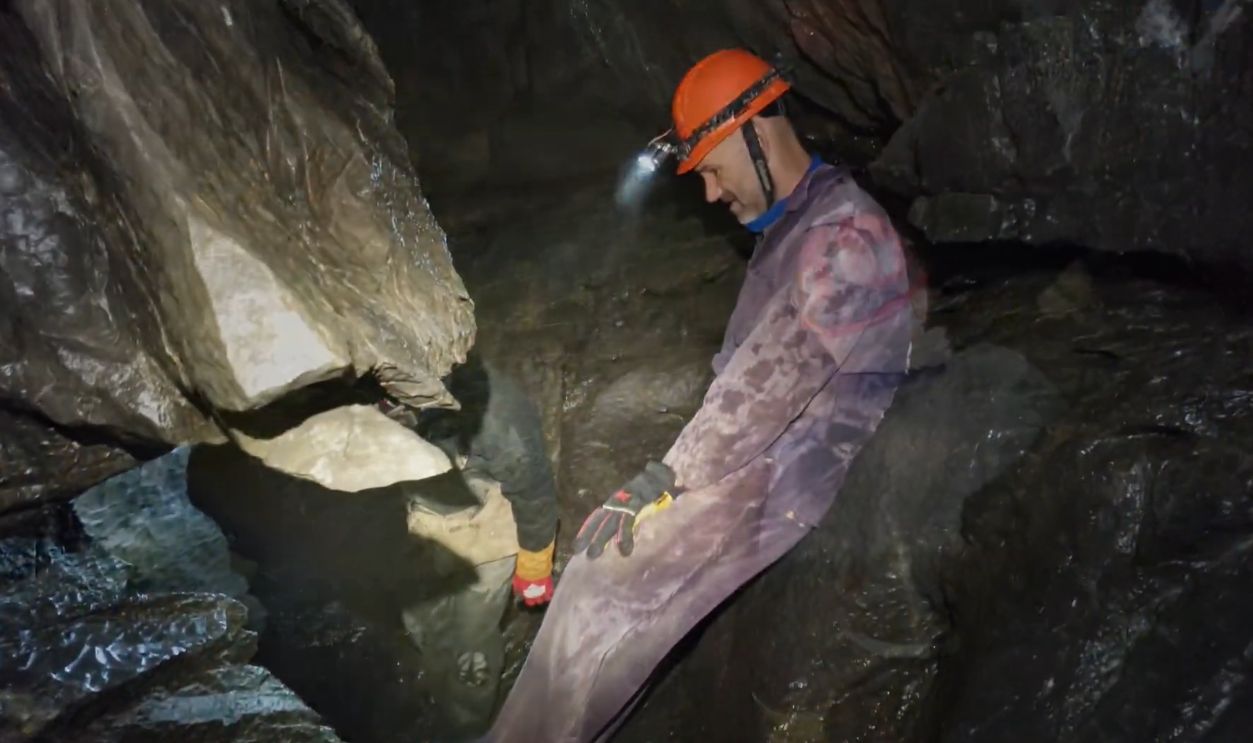 HIDDEN Caves of Vancouver Island, Jesse St Louis
HIDDEN Caves of Vancouver Island, Jesse St Louis
Studying the Ancient Stone
Dr. Paul Griffiths, once a young caver here, is now a cave and karst scientist. He studies the 250-million-year-old limestone of the Quatsino Formation. Only one to two per cent of the land is karst, but ARGO’s drainage feeds the Tsulton River, influencing ecosystems “all the way to the sea,” he says.
And its darkness holds creepy secrets.
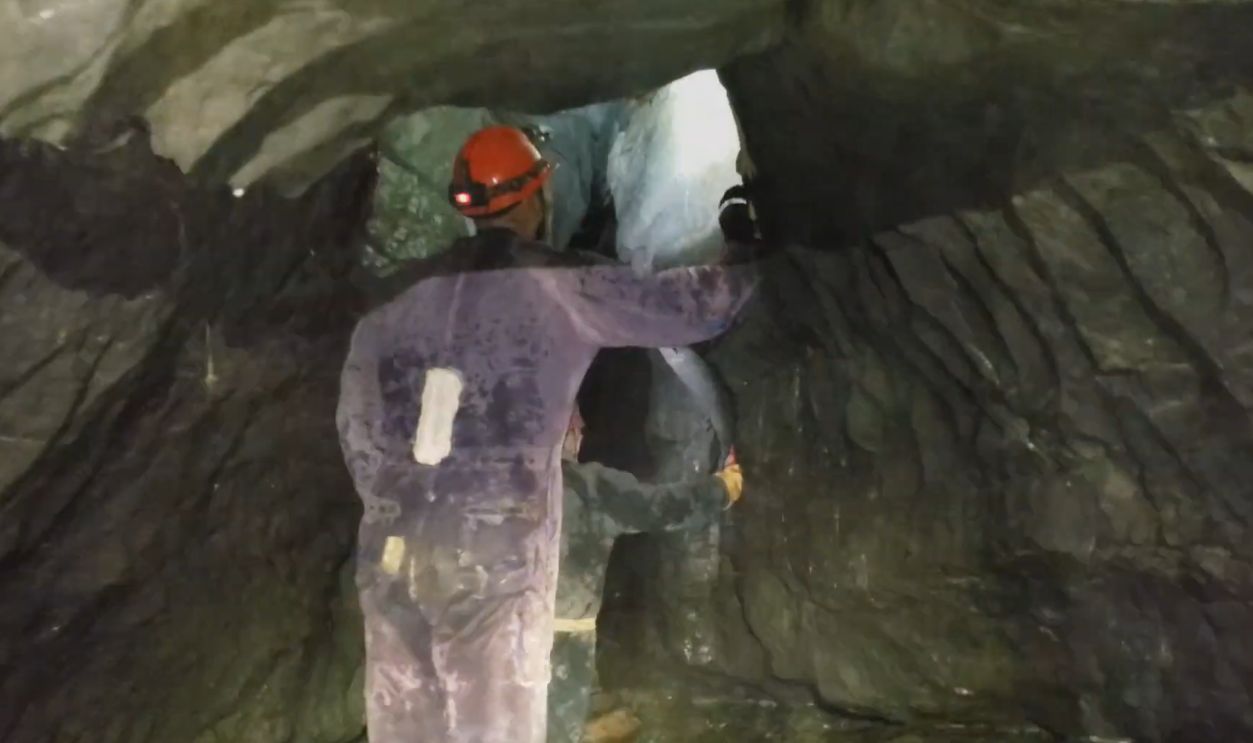 HIDDEN Caves of Vancouver Island, Jesse St Louis
HIDDEN Caves of Vancouver Island, Jesse St Louis
Life in the Darkness
Griffiths notes, “Every part of ARGO has life.” From troglobitic creatures without eyes to the Quatsino Cave amphipod, the system supports unique species. A guarded bone pile contains 50 species, including remains of the extinct giant short-faced bear — a rare snapshot of evolution deep underground.
And there was still more to find.
 Troglobites: Strange Cave Specialists | Planet Earth | BBC Earth, BBC Earth
Troglobites: Strange Cave Specialists | Planet Earth | BBC Earth, BBC Earth
Bartlett Steps Up
Bartlett spent five years on the project before becoming lead. “There was a year we did 152 trips into the cave,” she says. Training a team to handle ARGO’s hardest sections took time, but the mysterious windy tunnel stayed on her mind. “For three years, it was haunting my dreams.”
Finally, Bartlett made a daring plan.
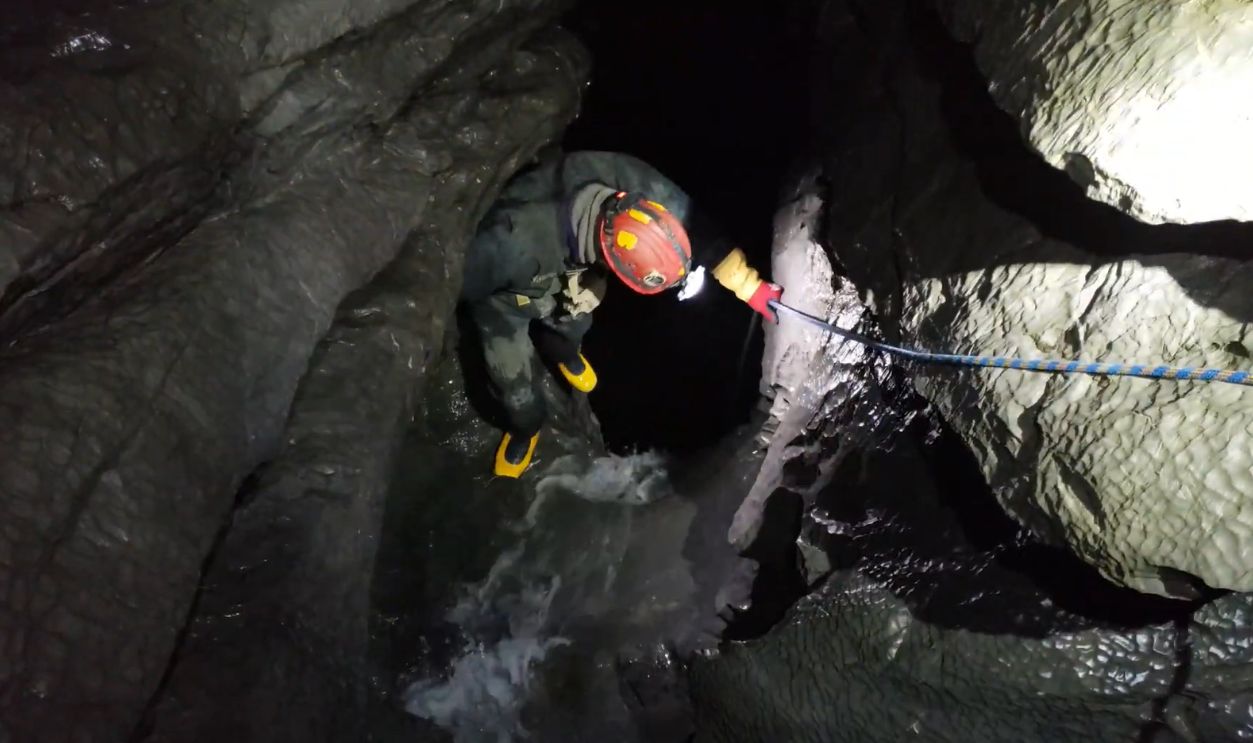 HIDDEN Caves of Vancouver Island, Jesse St Louis
HIDDEN Caves of Vancouver Island, Jesse St Louis
Planning the Big Push
In June 2024, the team decided to tackle the lead. Two teams would enter from opposite caves, aiming to meet. Bartlett, Oscar Jacobsson, and Kaisa Weins took one side; Countess, Michael Peterson, and Myles Fullmer took the other. Bartlett’s group faced a whopping 18-hour round trip.
Communication would prove to be challenging.
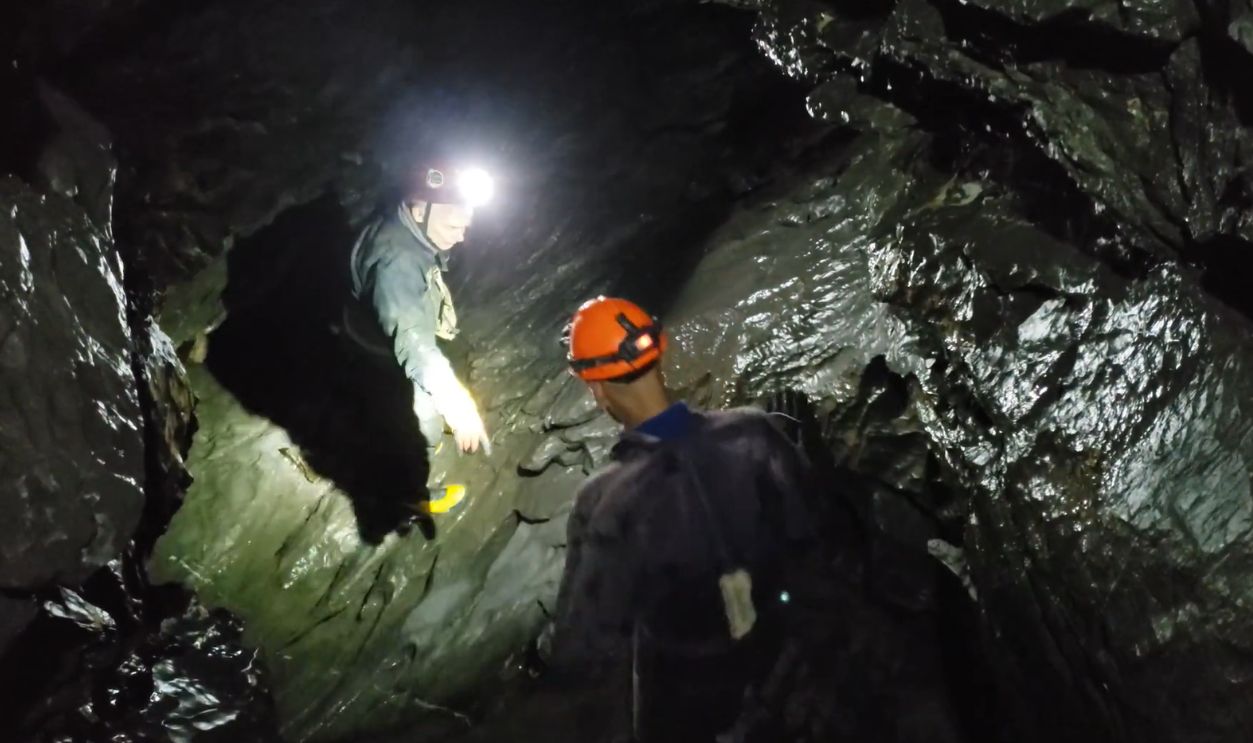 HIDDEN Caves of Vancouver Island, Jesse St Louis
HIDDEN Caves of Vancouver Island, Jesse St Louis
The Radio Test
Handheld radios in caves are useless through rock — unless there’s an open void. Bartlett’s team wormed through the twisting passage. Crackling static gave way to Fullmer’s excited voice: “Did I just hear you guys?!” Moments later, they heard him booming: “HELLO!” from somewhere in the darkness ahead.
But the adventure was far from over.
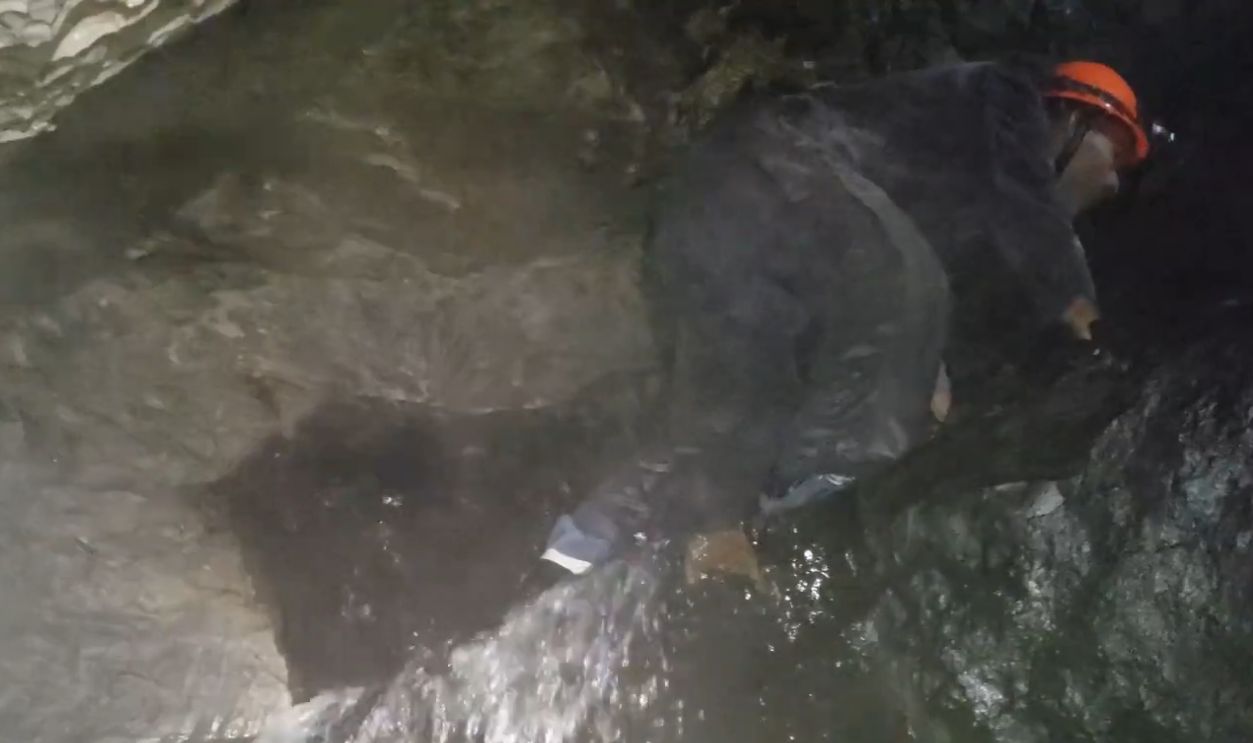 HIDDEN Caves of Vancouver Island, Jesse St Louis
HIDDEN Caves of Vancouver Island, Jesse St Louis
An Impassable Hole
Lights from the other side were still invisible. Bartlett’s team faced a yawning hole in the floor. Traversing it meant bolting into the wall and rigging a safety rope. Peterson began, but rope ran short before they could finish.
They’d have to turn back and return for the final push another day — and that they did.
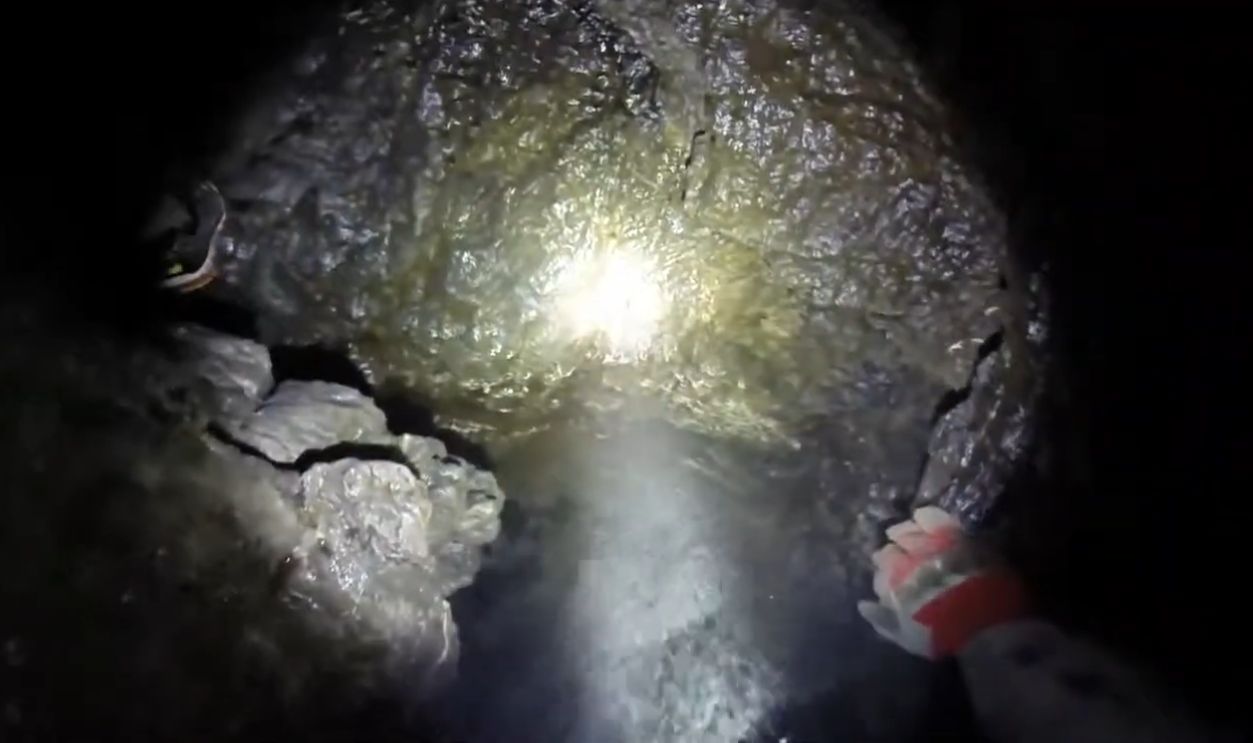 Glory 'Ole, Vancouver Island GoPro, Justin Harris
Glory 'Ole, Vancouver Island GoPro, Justin Harris
The Return in August
On August 10, 2024, Bartlett, Peterson, and Jacobsson came back. This time, they brought enough rope and a custom laser device to measure the passage. Bolts were placed, the traverse crossed, and measurements taken — proof at last of a continuous path between the two caves.
This changed everything they new about Canada’s underground cave system.
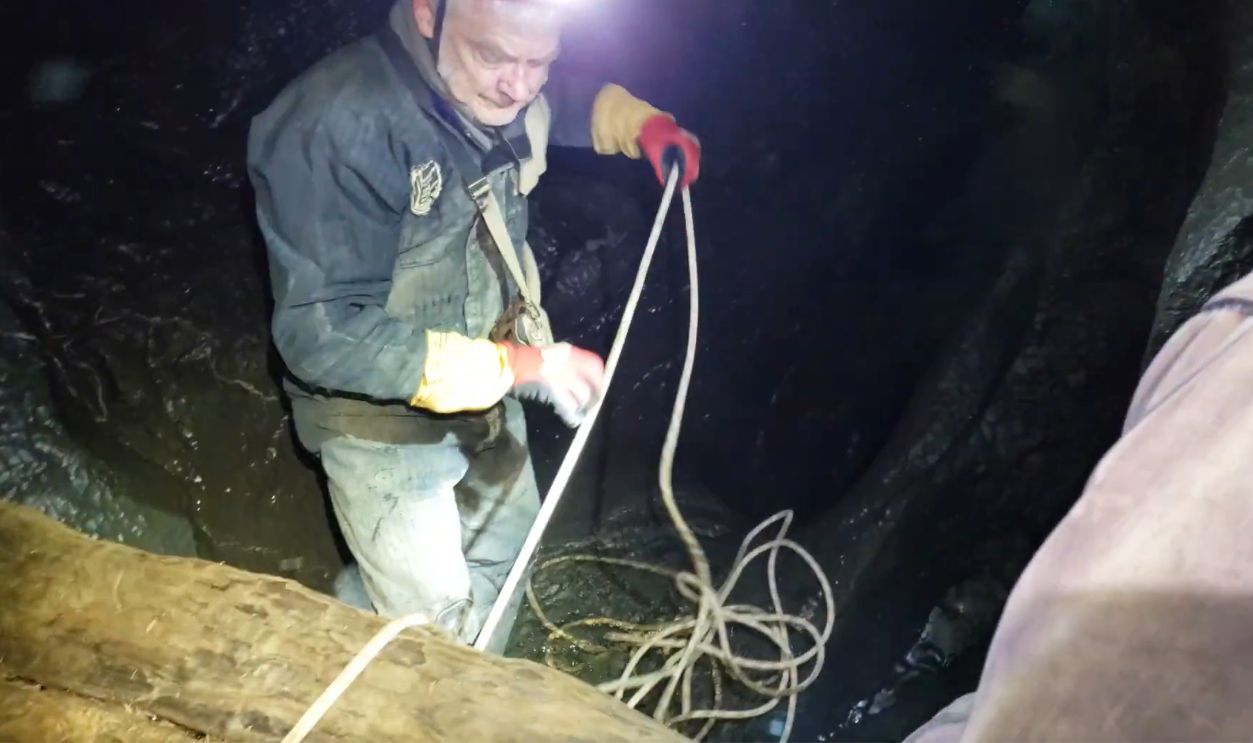 HIDDEN Caves of Vancouver Island, Jesse St Louis
HIDDEN Caves of Vancouver Island, Jesse St Louis
Canada’s New Longest Cave
With the connection surveyed, ARGO stretched 25,450 metres (83,497 feet)— surpassing Castleguard Cave’s record, which it had held for 56 years. “Two caves were now one,” and Canada’s underground map had to be rewritten.
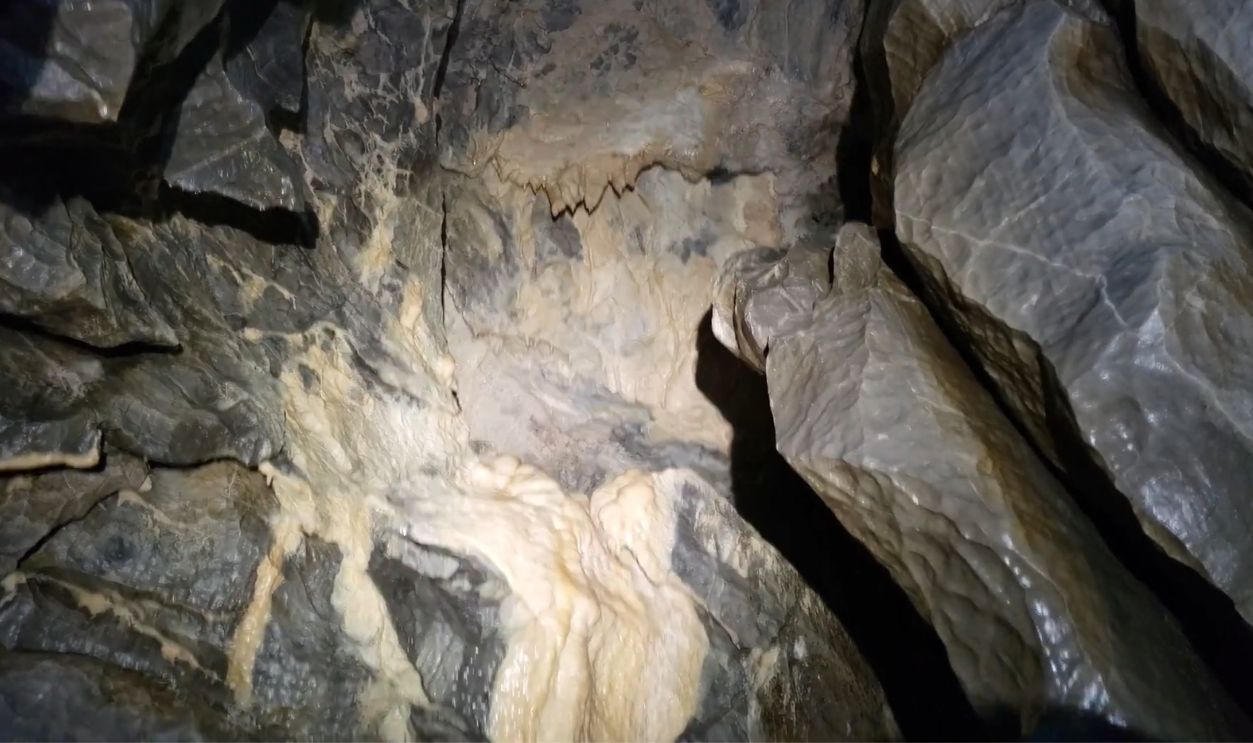 HIDDEN Caves of Vancouver Island, Jesse St Louis
HIDDEN Caves of Vancouver Island, Jesse St Louis
A Landmark in Caving History
The achievement is a testament to persistence. Decades of small advances, from timber cruisers’ first sight of Giants Cave to Bartlett’s final rope traverse, came together in one historic moment — the birth of Canada’s longest cave system.
Breaking records wasn’t the only goal of this adventure, though.
The Cave’s Delicate Beauty
ARGO isn’t just about records. Inside are galleries of calcite soda straws, delicate formations built drop by drop over millennia. These wonders are fragile, and each step inside the cave risks damaging what time has so carefully made.
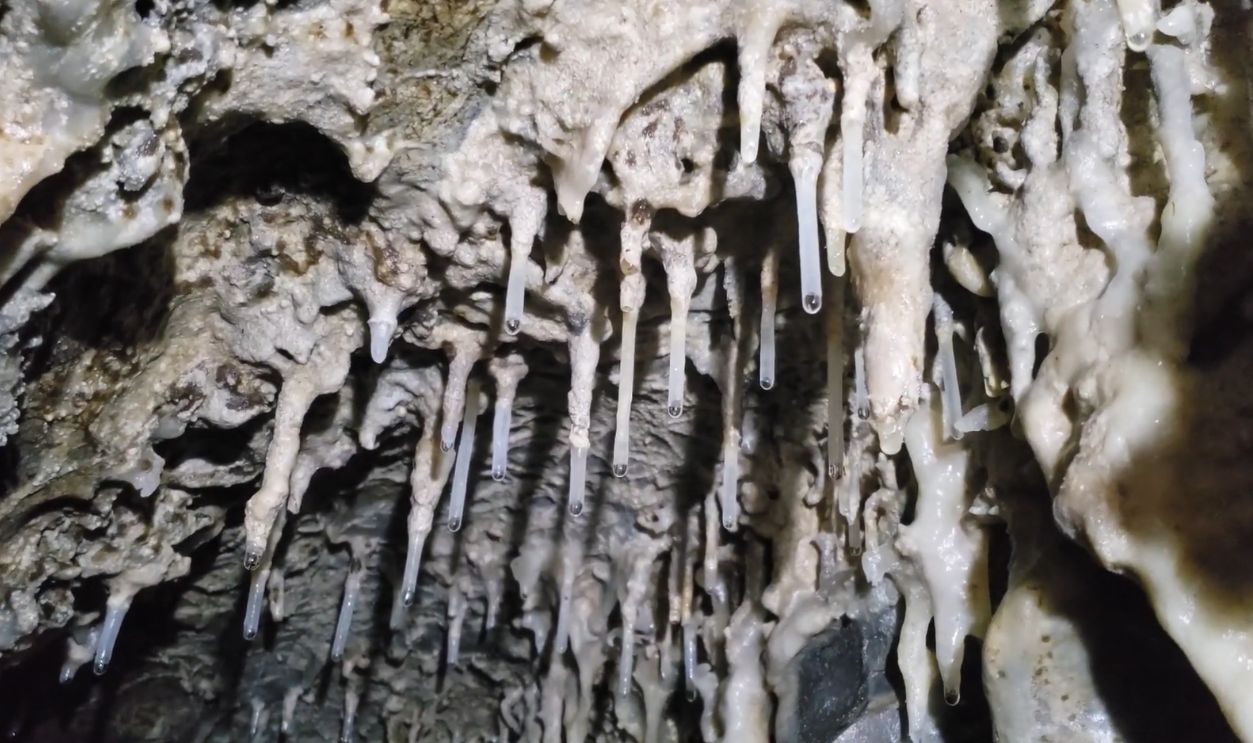 HIDDEN Caves of Vancouver Island, Jesse St Louis
HIDDEN Caves of Vancouver Island, Jesse St Louis
Threats From Above
Logging has heavily impacted the surrounding coastal rainforest. “Currently, nothing is preventing industrial activities in the area or even overtop of the cave itself,” the team warns. This fragile ecosystem could be threatened without stronger protection.
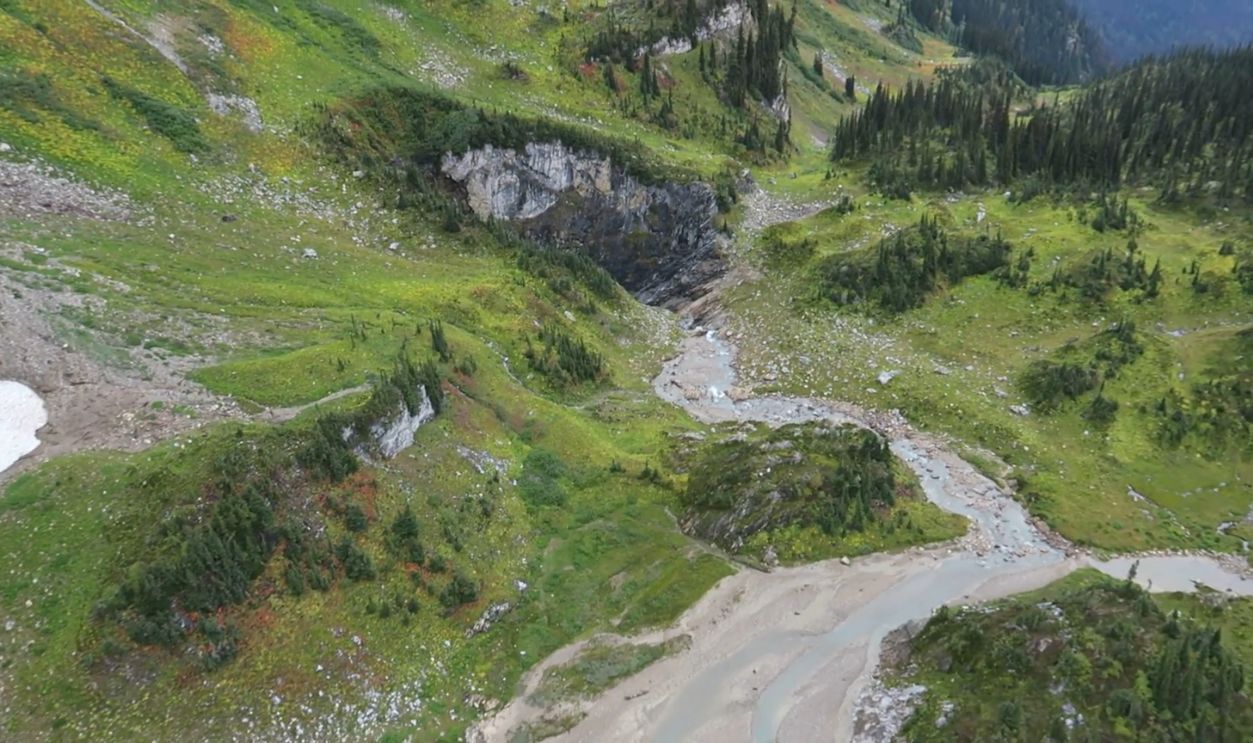 Aerial view of previously unexplored B.C. cave, Canadian Geographic
Aerial view of previously unexplored B.C. cave, Canadian Geographic
Indigenous Territory and Stewardship
The ARGO system lies within the traditional territories of the ʼNa̱mǥis First Nation. Efforts are underway among the ʼNa̱mǥis and other stakeholders to preserve both the cave and its watershed for future generations.
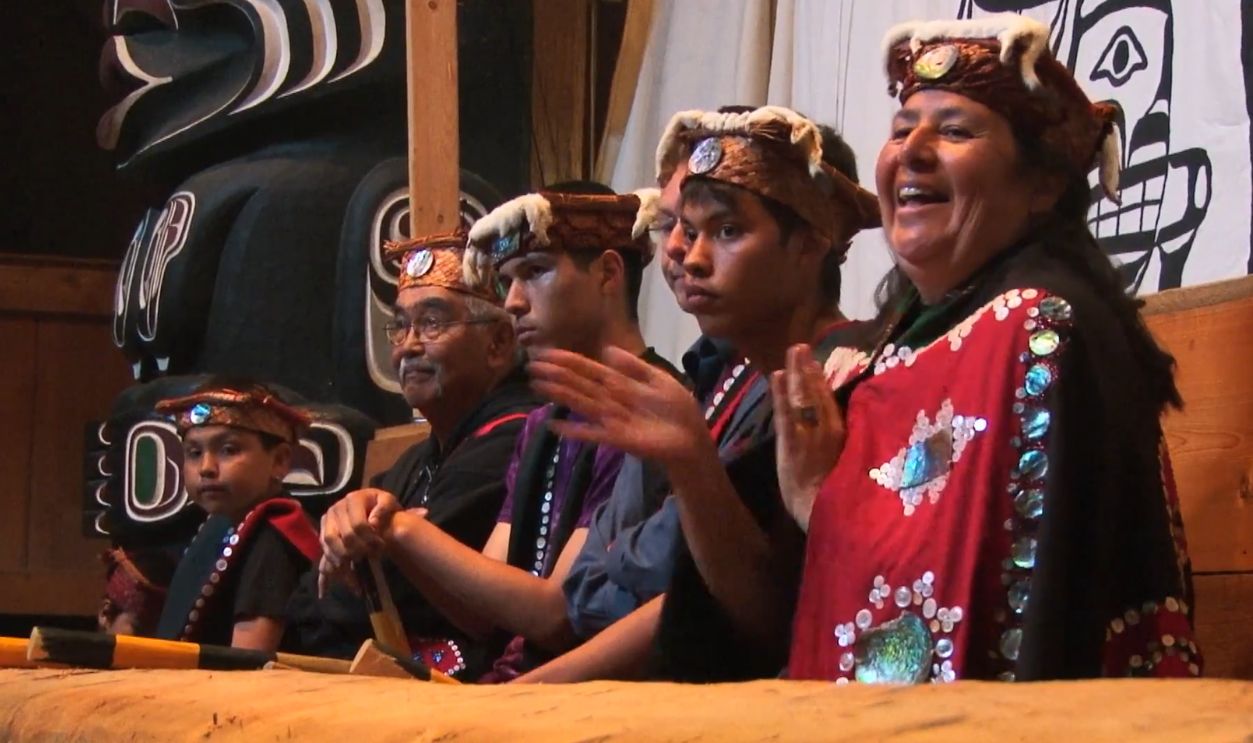 First Nations of British Columbia, Lindblad Expeditions
First Nations of British Columbia, Lindblad Expeditions
A Call for Legislation
BC’s proposed Cave Protection Act has been introduced and failed multiple times over 37 years. Advocates want laws recognizing caves as unique ecosystems and groundwater sources worth protecting — before they are lost.
 Ryan Bushby (HighInBC), Wikimedia Commons
Ryan Bushby (HighInBC), Wikimedia Commons
Not the End, But a Beginning
“This marks the end of one chapter and the beginning of the next,” says Bartlett. Many leads remain unexplored, promising more discoveries ahead. The record-breaking connection is just one step in unlocking ARGO’s full story.
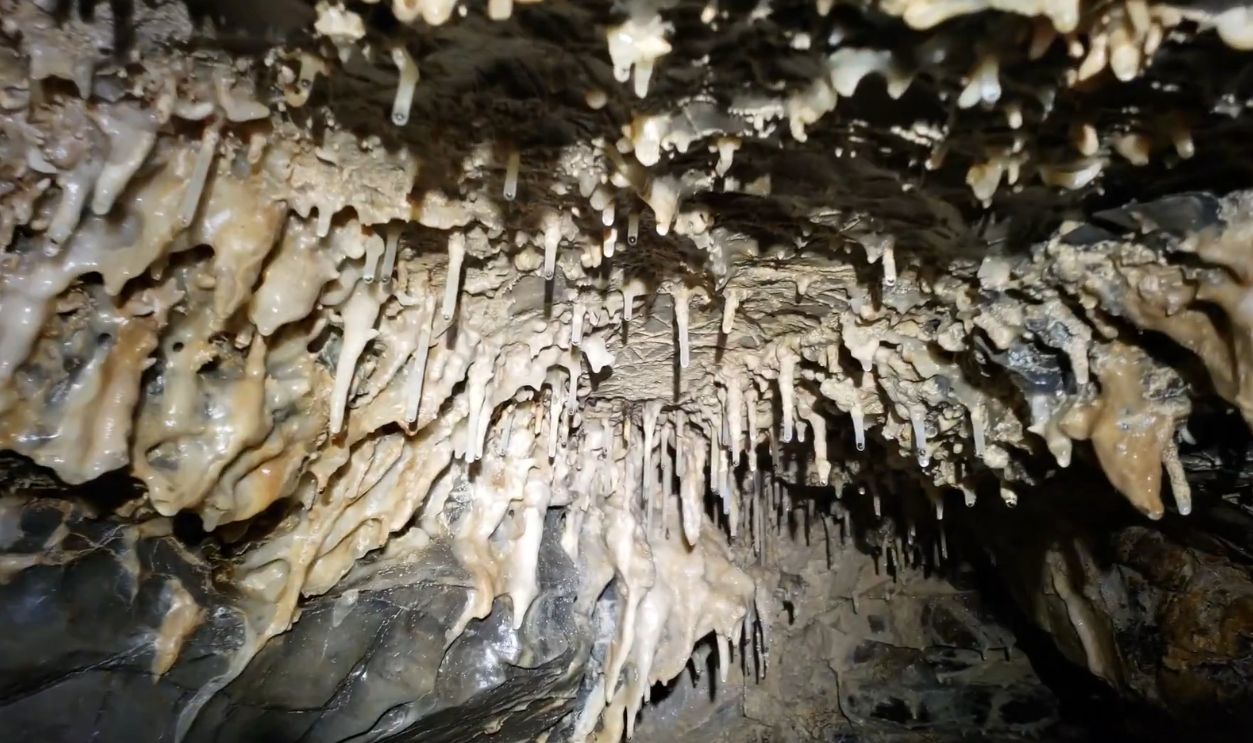 HIDDEN Caves of Vancouver Island, Jesse St Louis
HIDDEN Caves of Vancouver Island, Jesse St Louis
Remembering the Past Effort
From Rob Countess’s early mapping to Lay and Tuot’s digging, each caver’s contribution was essential. Over 100 people in 48 years left their mark in ARGO, driven by curiosity and a passion for discovery.
An adventure not built for the weak.
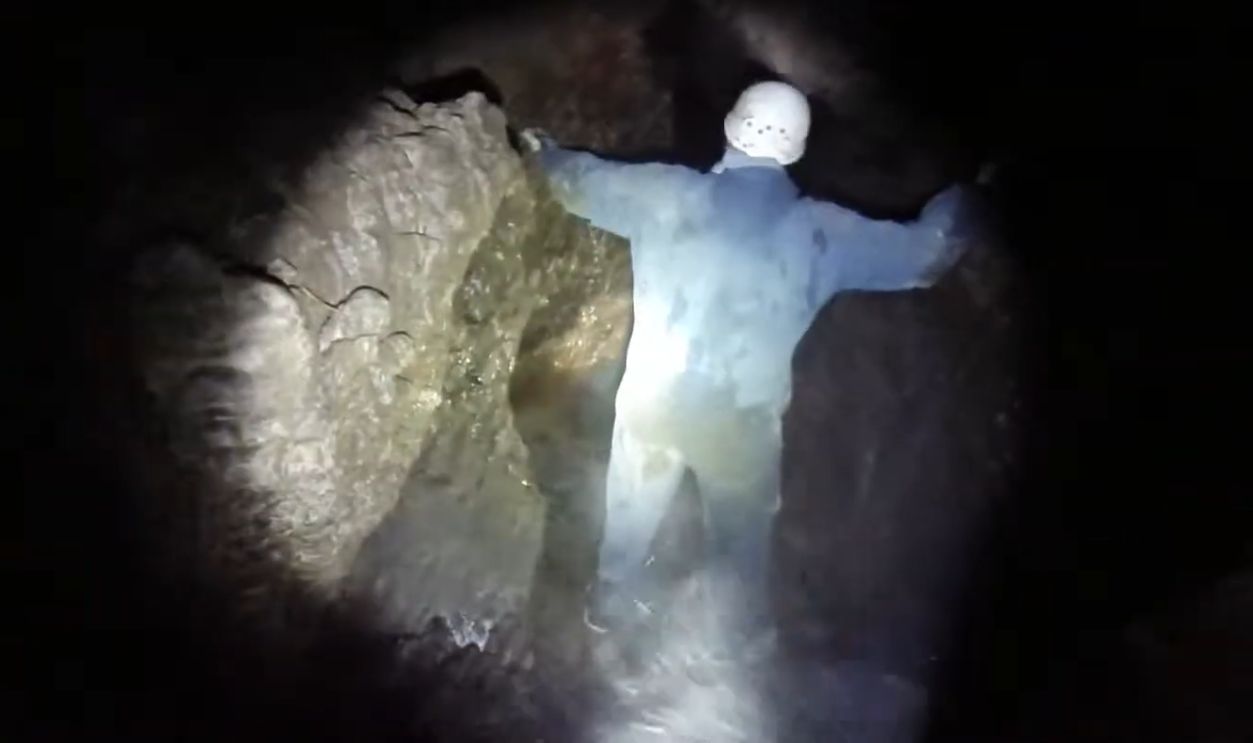 Glory 'Ole, Vancouver Island GoPro, Justin Harris
Glory 'Ole, Vancouver Island GoPro, Justin Harris
The Physical Challenge
Pits, unstable climbs, freezing mud tunnels like “the GLORP,” and twisting squeezes make ARGO one of the toughest cave systems in Canada. The difficulty keeps progress slow but makes each breakthrough even more rewarding.
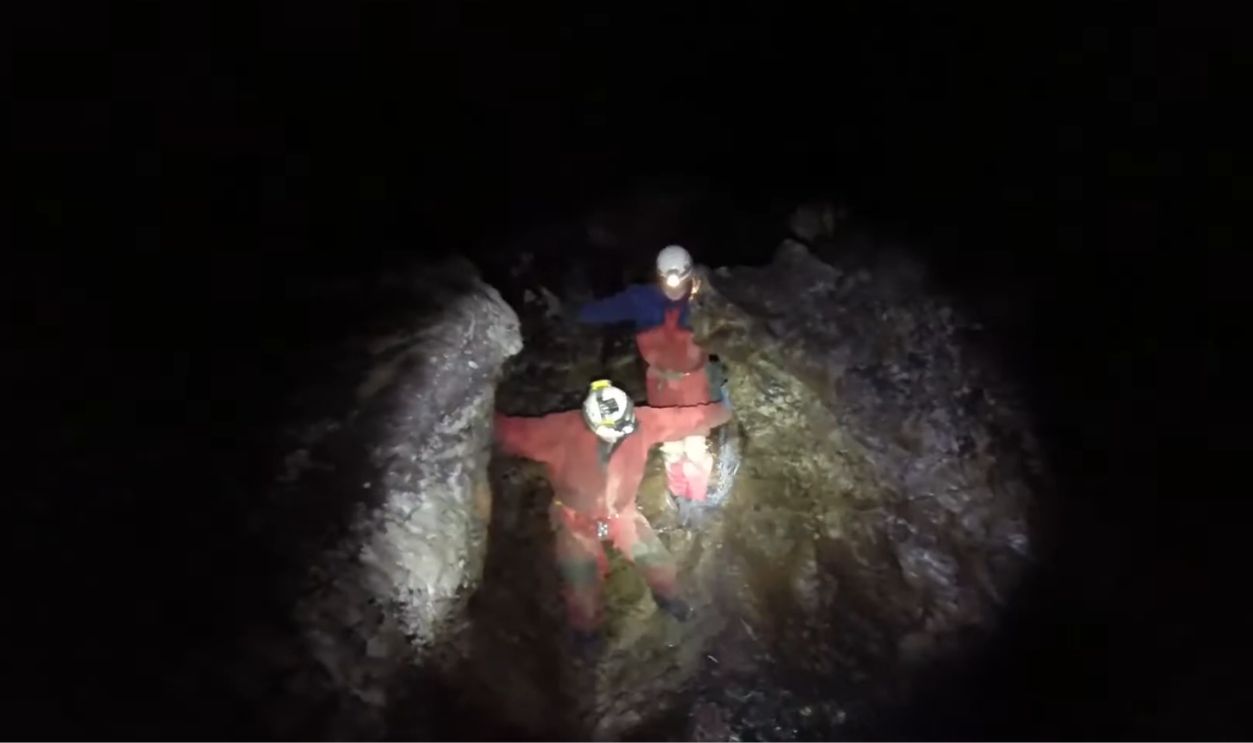 Glory 'Ole, Vancouver Island GoPro, Justin Harris
Glory 'Ole, Vancouver Island GoPro, Justin Harris
Water’s Ancient Work
ARGO’s tunnels were carved over millennia by water, now flowing invisibly to the Tsulton River and beyond. Hydrological tracing proves the cave is not just a geological marvel, but a lifeline for ecosystems from mountain to sea.
That’s not the only proof, though.
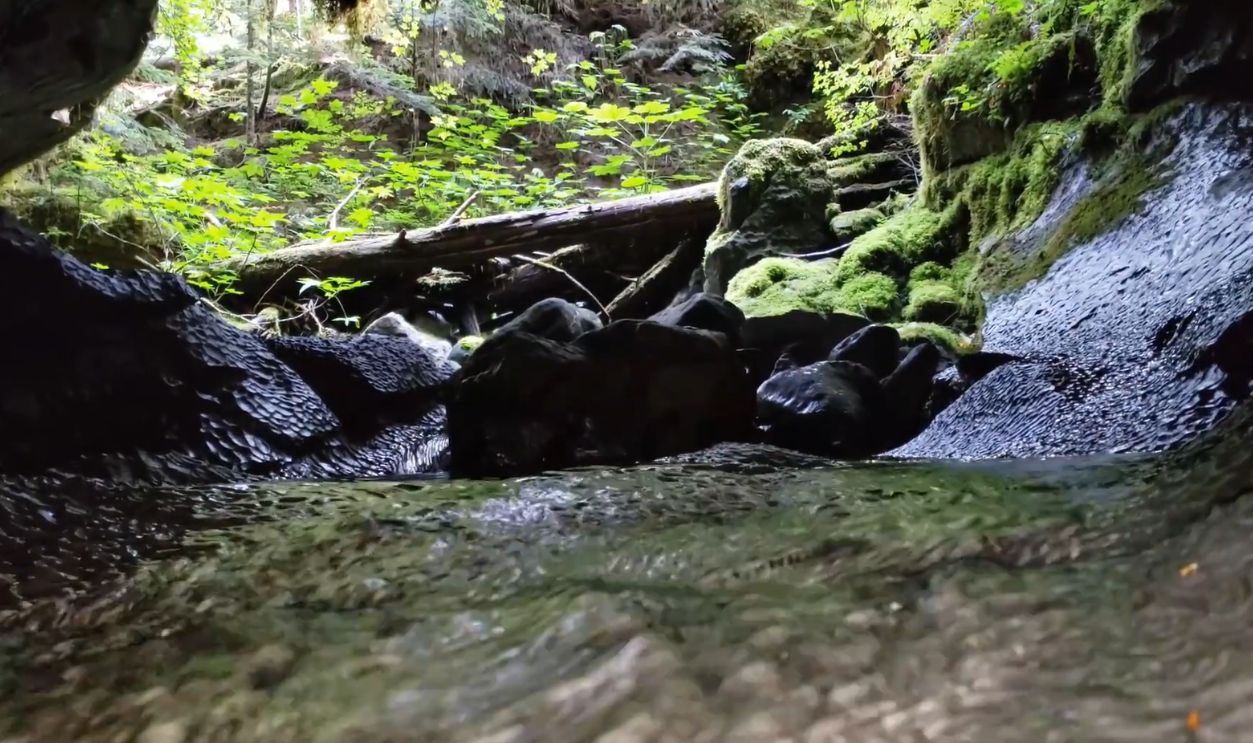 HIDDEN Caves of Vancouver Island, Jesse St Louis
HIDDEN Caves of Vancouver Island, Jesse St Louis
The Bone Pile Mystery
In a well-guarded location deep inside, a bone pile holds the remains of 50 species. Among them: the giant short-faced bear, extinct for thousands of years. It’s a paleontological treasure trove hidden in the darkness.
Bartlett’s lead, however, has brought light to the darkness.
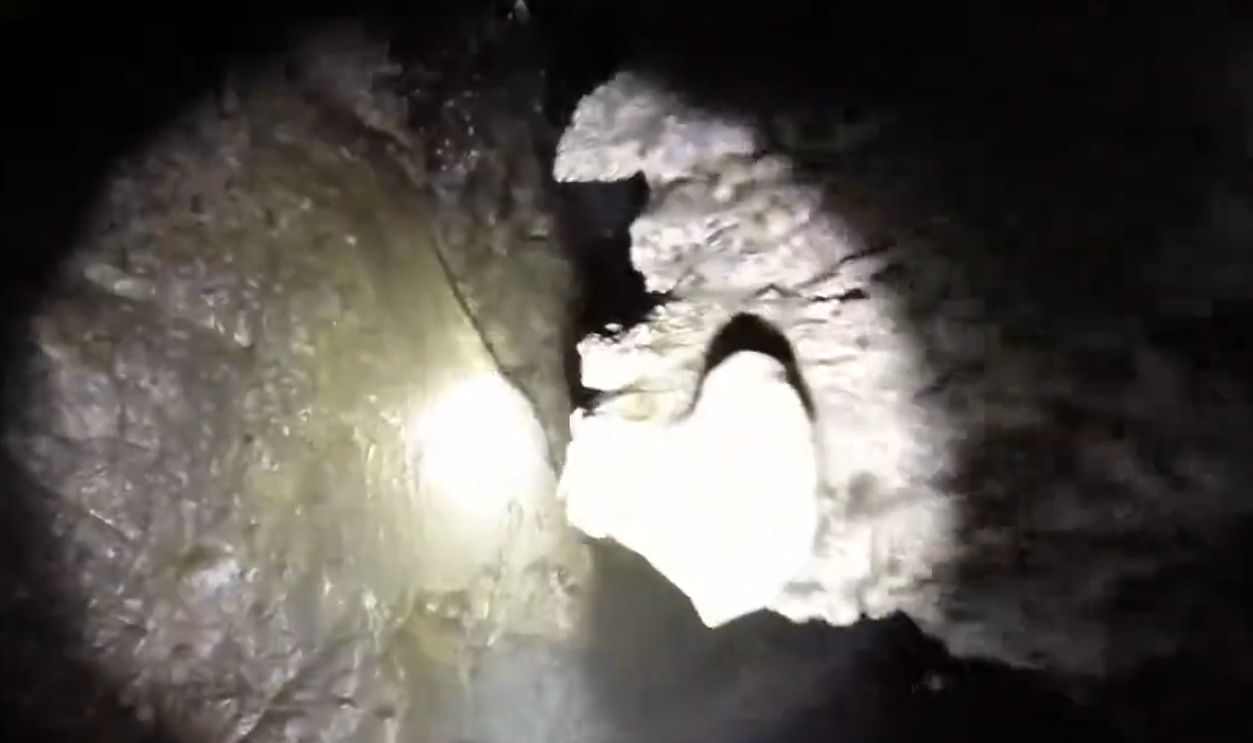 Glory 'Ole, Vancouver Island GoPro, Justin Harris
Glory 'Ole, Vancouver Island GoPro, Justin Harris
Bartlett’s Legacy in the Making
By leading the final connection push, Erin Bartlett cemented her place in Canadian caving history. Her persistence turned a forgotten lead into a national landmark, now officially “part of the national Canadian heritage,” says Griffiths.
And it’s not over yet.
More Connections Possible
Maps suggest ARGO’s story isn’t over. Other overlaps with nearby systems may hold more hidden connections, each potentially adding kilometres to Canada’s underground frontier.
The possibilities are endless.
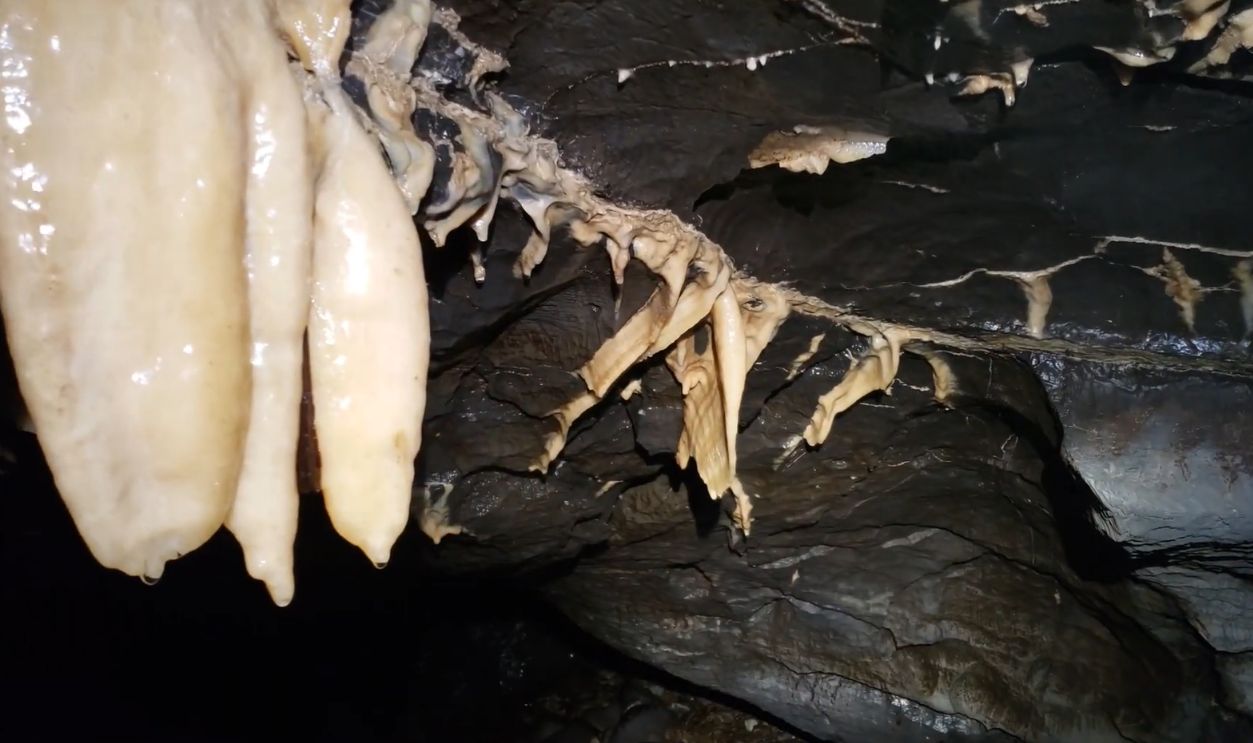 HIDDEN Caves of Vancouver Island, Jesse St Louis
HIDDEN Caves of Vancouver Island, Jesse St Louis
The Long View
For decades, Castleguard Cave was thought untouchable as Canada’s longest. ARGO’s rise shows that persistence, teamwork, and a bit of obsession can rewrite records — and that more surprises likely wait below.
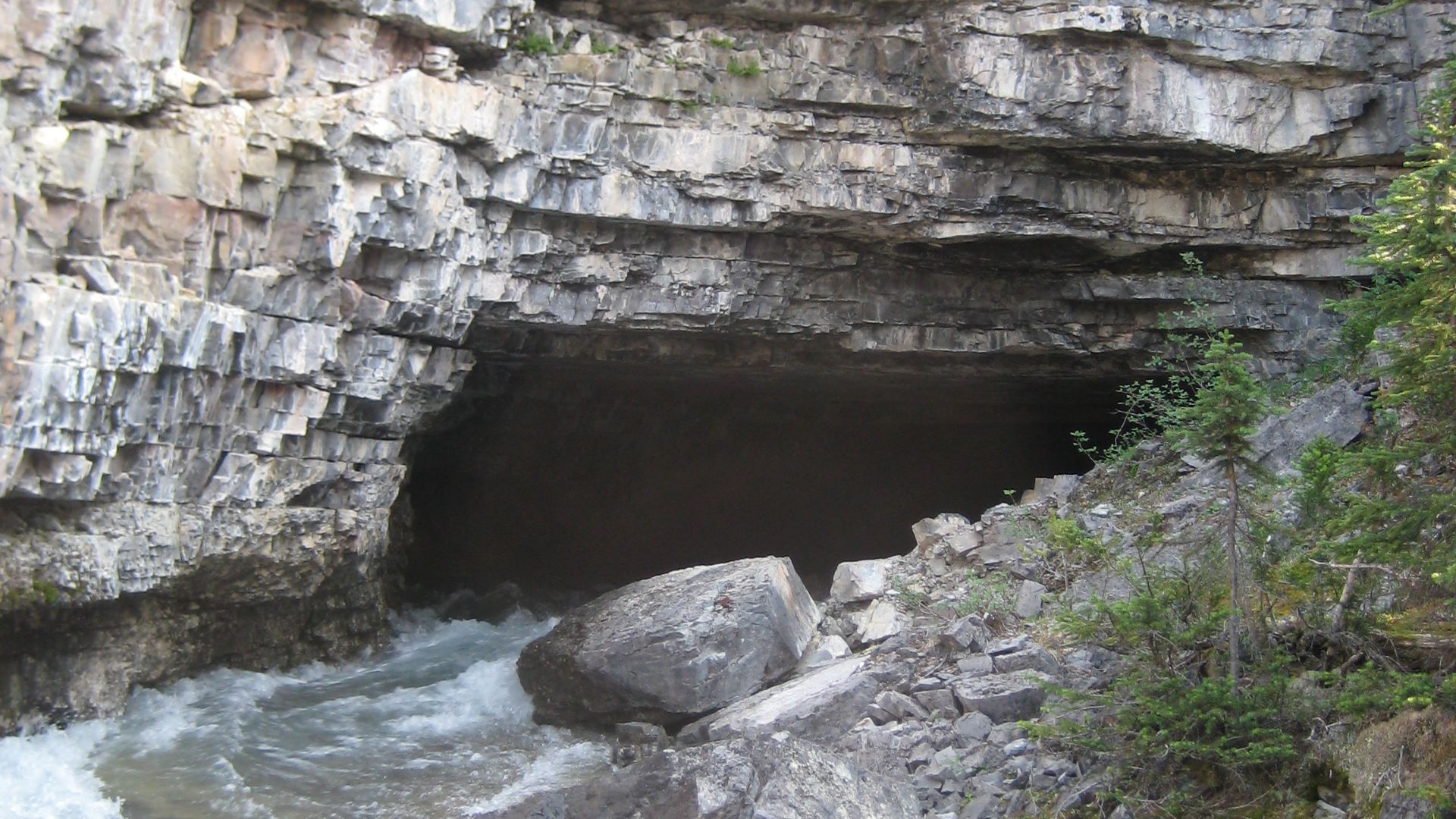 James Heilman, MD, Wikimedia Commons
James Heilman, MD, Wikimedia Commons
Protecting What’s Been Found
Conservationists hope this high-profile discovery will rally support for protecting ARGO and other karst landscapes. Without action, the fragile formations, rare species, and unique hydrology could be irreparably damaged.
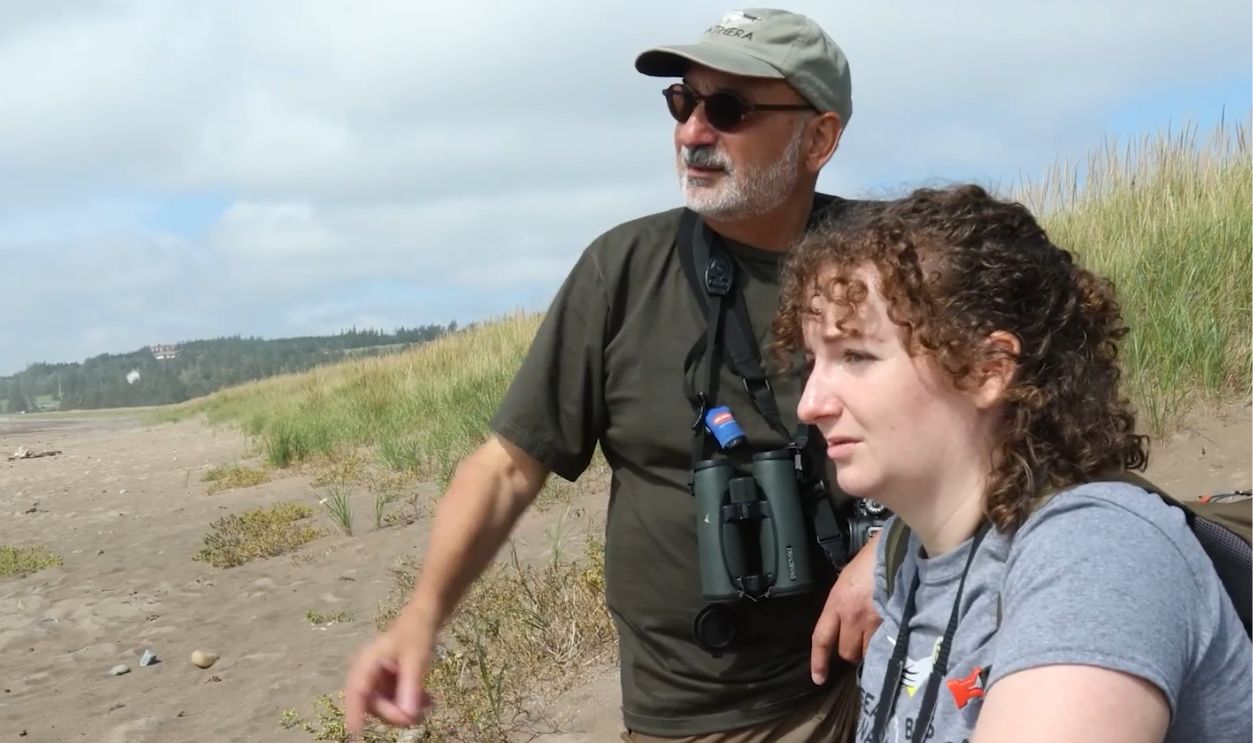 Key Biodiversity Areas – Canada’s Critical Places for Nature, Birds Canada
Key Biodiversity Areas – Canada’s Critical Places for Nature, Birds Canada
The Allure of the Unknown
For Bartlett and her team, the work isn’t just about length records. It’s about the thrill of stepping where no one has before, the mystery of unlit corners, and the satisfaction of connecting the dots underground.
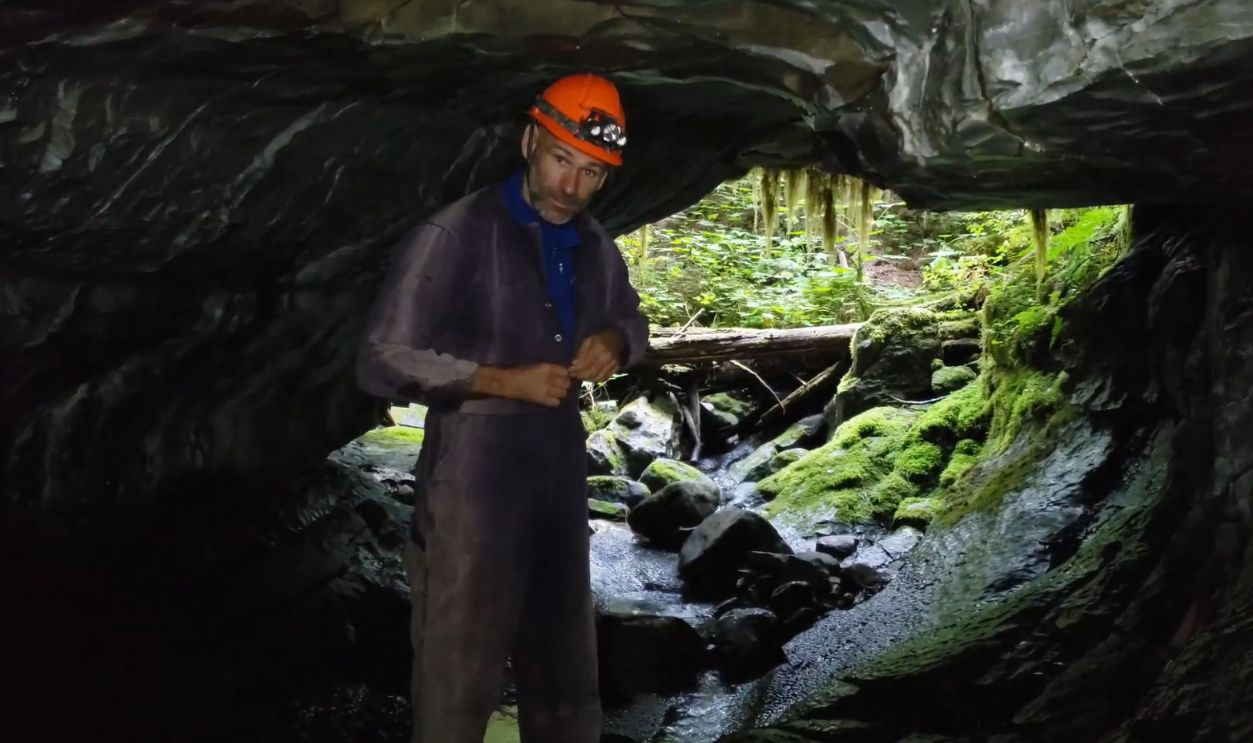 HIDDEN Caves of Vancouver Island, Jesse St Louis
HIDDEN Caves of Vancouver Island, Jesse St Louis
An Ongoing Adventure
ARGO is still breathing, as all caves do. Drafts whisper through unexplored leads, hinting at more to come. Somewhere in the darkness, another “Great Escape” might be waiting, ready to challenge the next generation of cavers.
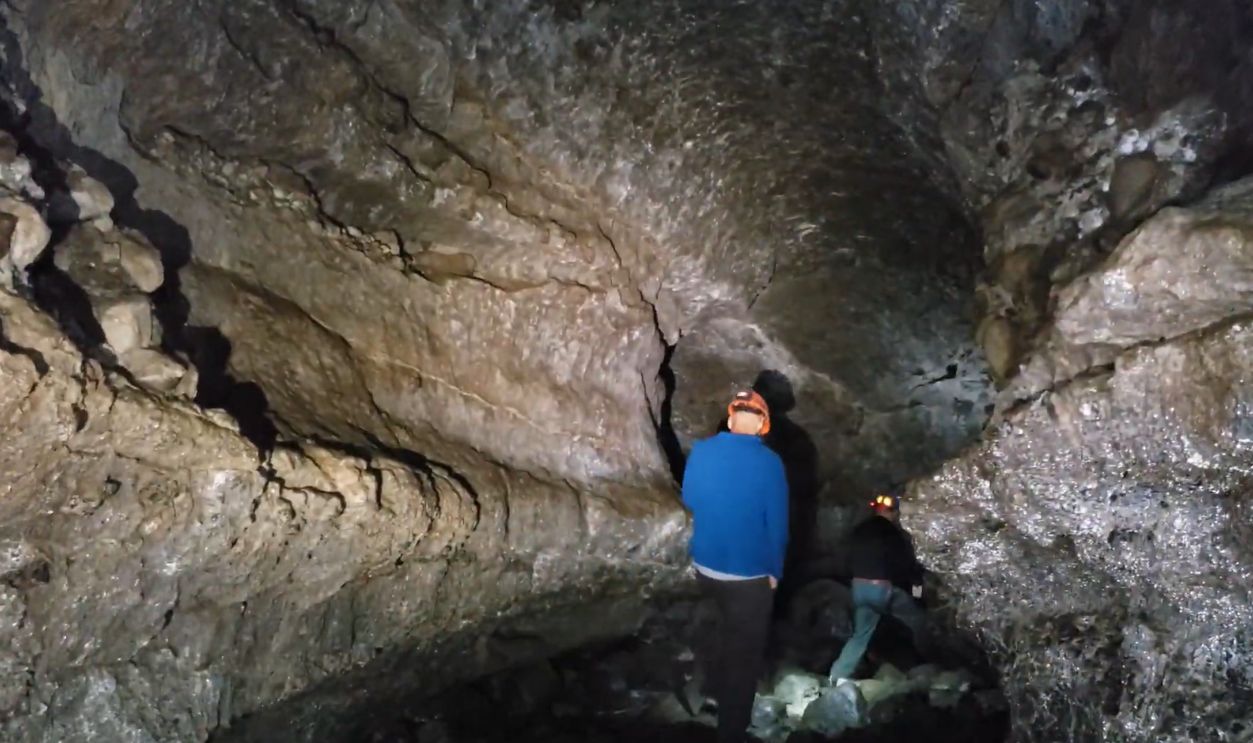 HIDDEN Caves of Vancouver Island, Jesse St Louis
HIDDEN Caves of Vancouver Island, Jesse St Louis
You May Also Like:
America’s Most Jaw-dropping Underwater Caves
Neanderthal Markings Found In Sealed Cave
The Beginnings Of America: The Paisley Caves
Source: 1

